#reading the Bible for my history of Catholicism class
Text
Why is Jesus just a wizard speaking in riddles all over the place
#reading the Bible for my history of Catholicism class#my teacher is insane ofc he assigned the longest gospel#bc he hates me#me specifically
7 notes
·
View notes
Text
Trigger warning for mentions of antisemitic historical attitudes and actions throughout the European Renaissance!!
I’m gonna make a longer post about this at some point, likely with references and evidence and other such sources to back up my argument but I’m exhausted rn so I’m just gonna say this*:
We need to give 1789 Hob a little more credit with how much he’s grown since 1389. We all focus on how wrong he was about the slave trade (which is very fair and I’m not excusing his actions at all) but it overshadows another of his lines that’s pretty subtly important and it’s this: “and I’m not Jewish”. More importantly, it’s how he says it.
It’s a joking line, we all probably chuckled at it because it’s such a snarky thing to say in the face of Lady Johanna Constantine’s threat of violence, but when you realize the geopolitical and religious atmosphere of Europe for… well, all of history, it holds a little more weight than that.
Europe has always been pretty deeply antisemitic. During the early 1300’s and into the 1400’s, Jewish people were heavily blamed for the Black Plague and were kidnapped and tortured into confessing to crimes they didn’t commit (poisoning wells with the plague, selling cloth that was laced with the disease, etc). In the 1400’s, Jews were completely banned in the Iberian Peninsula, triggering the Sephardic Diaspora that displaced Jewish communities all across Europe and forced many Jewish people to convert to Catholicism to continue their ways of life in what is now Spain and Portugal. For the majority of the early Renaissance, Christian humanists spent a great deal of time, money, and effort into understanding Jewish thought, Hebrew, and Kabbalah (which is a Jewish mystical school of thought), with the ultimate goal of getting to the root of Christian truth through the Hebrew old testament instead of Latin translated bibles or the Greek new testament. I could go on and on, but suffice it to say, antisemitic attitudes ran deep in European society, in every corner of the continent, for the majority of pre-modern history (and post-modern too, but that’s outside the realm of this post).
So imagine my surprise when, after learning about all of this history that is seeped in antisemitism, Hob Gadling (an English peasant who canonically lived through the Black Plague, the Spanish Inquisition, and probably received a Humanist education) said “I’m not Jewish” with almost no discernible contempt. He wasn’t angry at the accusation. He wasn’t even really offended. He says it as a point of clarification, with a small chuckle. And that? That’s big, because he’s lived in a society brimming with hatred for Jewish people for his whole life.
So yes, he made a mistake in stepping into the slave trade as a line of work, but if there’s one thing we learn about Hob Gadling, it’s that he learns from his mistakes. He attempts to atone for his wrongdoings. He’s not always on the right side of history, but he’s willing to put in the effort to educate himself and change his behavior. And I particularly love this example of that, because it’s not obvious. It’s not overt, it’s a subtle detail that the majority of people won’t pick up on, not without the historical context that makes it so impactful. And in any other show, I’d say it was just coincidence, or that I was reading too much into it, but this is the Sandman. This is Neil Gaiman, who is highly knowledgeable about all of this, who does his research, who is himself Jewish. I know it’s not a coincidence and it’s all the more wonderful for it.
*I am in no way attempting to claim to be an expert on this subject. I’m not Jewish, nor am I trying to speak for Jewish people who no doubt have more knowledge and expertise on the topic, I’m simply taking a class on the Renaissance period from 1300-1700 and I’ve noticed some historical contexts that add depth and nuance to episode 6 that I feel is important to share. I would love to start a discussion about this and open the floor for those who are more educated about this time period and Jewish history to have a chance to speak on the topic.
#antisemitism tw#discussions of Jewish history and deeply rooted antisemitic views throughout European history#Hob Gadling#I hope I didn’t just put myself into a line of fire with this post#I just wanted to bring attention to it because I noticed it on my last watch through and thought it was interesting#the sandman#sandman netflix#neil gaiman#sandman neil gaiman
37 notes
·
View notes
Note
hi, etta! you mentioned the word catechist in one of your tags. i've never heard that word before! i did look up the definition but it was such a dry explanation! and honestly, i don't know what a catechism would consist of either. the explanation i found brought to mind a Q&A sheet like you would get for history class, haha. i was wondering if when you have time, you would be able to tell me a little bit about what it means to be a catechist?
Of course!
The Catechism itself is an official book that was compiled by the early church fathers and updated over the years by various councils and popes to include all of the Catholic Church's teachings on all the Big Important Topics. It's not the Bible, but it does include information on how we interpret the Bible, explaining the creed line-by-line, breaking down the sacraments, and tons of other aspects of how to live a good daily Christian life and tackle hard topics. You can read it online but it can be pretty dense to get through without someone helping to explain all the context, which is where catechists come in!
A catechist is anyone who teaches the Catholic faith, usually in a classroom setting. Kids who are born and baptized into Catholic families (sometimes also known as "cradle catholics". I'm one) usually go through some kind of faith formation as they grow up, either through religious education as a class in catholic schools alongside history and literature and math and science, or through something called CCD (which stands for catholic catechetical development) which are once-a-week classes usually in the evenings after school. Adult converts or reverts to the faith also go through a similar program called RCIA. These programs don't have homework or tests or anything, and they're voluntary, but they are structured in a way meant to go deeper into history and theology and give you more context and appreciation for what you're seeing at Sunday Mass and why we believe the things we do.
CCD and religious ed programs usually have a curriculum for each grade, focusing on different parts of the catechism each year. For example, most kids receive their first Holy Communion in 2nd grade, and so that year is learning all about the sacraments and the Eucharist. 8th grade is usually Confirmation, which is the sacrament where YOU decide that YOU want to be Catholic and become an "adult" in the Church, receiving the Gifts of the Holy Spirit, and so the curriculum that year focuses on adult faith formation. Unfortunately some of those are dumbed-down waaaayyy too far and as a result, I watched a LOT of my classmates treat Confirmation as a "graduation" from the program and not as a solemn holy eternal vow.
My confirmation year is also when I got serious about understanding other faiths as well as Catholicism because I took that decision seriously, and it's something I love and learn how to share with people. St. Catherine of Alexandria, pray for us! My mom is a CCD teacher and I helped her out while I was in high school. She wrote her own curriculum, which included weekly powerpoints, fill-in-the-blank-sheets, coloring pages, etc. so I'd help her find good pictures, fix formatting issues, check grammar, and occasionally cover teaching the class if she was busy with my sibling's events.
If you're looking for quality accessible resources, Ascension Press is one of my favorites. They have a great youtube channel (highly recommend Fr. Mike Schmidt) and a Bible in a Year podcast. I've used their Chosen, Bible timeline, and Theology of the Body programs myself. Catholic Answers is perfect for quickly finding thoughtful and thoroughly researched responses to almost any question. The US Conference of Catholic Bishops also has some good resources on their webpage. There's also a kids version of the catechism called the St. Joseph's Baltimore Catechism which is just as thorough as the original but much more accessible and full of illustrations. That might be a good primer too! There's a copy here on internet archive.
I hope this wasn't too dry lol. Please let me know if you have any more questions! :)
12 notes
·
View notes
Note
Good morning, hope you're doing well! I'm interested in learning more about Catholicism however I am not really sure how exactly I could do that. My whole family is atheist, so growing up I haven't had any contact with any form of Christianity (or any form of religion whatsoever). Do you have any recommendations on academic books on theology (or something of the sort), or any advice in general on how I should approach this?
My biggest thing about approaching this is to not approach it academically at first. You should foster a relationship with Christ first, and start attending a parish (you can look up "catholic diocese [closest city to you/your town]" to find parishes near you. They generally have a search function by town]. Even not understanding what's going on at Mass, the priest giving blessings and attending different parishes to see the different styles that parishes offer is good to get to know. Maybe you like the priests homily at one parish more than another. Usually priests will be outside the sanctuary (where Mass actually takes place) after Mass to greet people as they leave. When you're comfortable you can introduce yourself and he will direct you on how to start taking RCIA classes. Classes have pretty much already started so you may or may not be able to join in the next month or two. From there the parish will handle theologically learning.
My biggest things for helping your prayer life will be learning how to pray the prayers of the rosary. It's ok if you are stumbling or have to stare at the prayers the entire time at first. When you are first learning it isnt going to be very meditative, after you have the prayers memorized, you'll be able to meditate on the mysteries or any other meditations you'd like to think about while praying (like if you want to pray for a specific intention/person). Doing this daily is best.
Get used to sitting in silence and without thinking for 5 minutes a day. Normal meditation stuff, because that will get you used to the environment of prayer.
Read the gospels. There are four of them, titled Matthew, Mark, Luke, and John (in that order). Most bibles have notes at the bottom of the page, even non-"study" bibles have short notes. Getting a Catholic Bible (like from catholic online or in person bookstores) is best, since the notes will be approved by catholic biblical scholars. You can ask people online or Google other questions you have that aren't answered in the text. And, once you find a parish, you could ask your priest or RCIA director, that's what they are there for.
You are not expected to know anything about Catholicism before you start RCIA, and starting with the "logical"/theological part of religion before deciding to convert is silly. The RCIA class my fiancé just started is focusing on the relationship with Christ part, and then after he decides he definitely wants to continue with it, they will start going over Sacraments and theology and Dogma (official teachings).
If you want a history of Christianity book that's good I recommend The Story of Christianity (volumes 1 and 2) by Gonzalez. The first book is the Advent of Christ until the 1500s, the second one is the Protestant Reformation until the modern day. It talks about the historical reasons for certain theological developments as well as the theological assertions of most major Christian denominations.
Context of my fiancé starting RCIA last weekend from a background of atheism/lax cultural Christianity and the other gentleman in the class that also is coming from the same background. They both started going to Mass at the very start of Lent (the season right before Easter) and fell in love with it and decided to convert.
#catholic#catholicism#christian#christianity#traditional catholic#traditional catholicism#tradcat#tradcatholic#tradcatholicism#queue me up (queue me up inside) can't queue up (queue me up inside) queue meeeee
13 notes
·
View notes
Text
just to be safe, here’s some tw: discussion of religion, mentions of authority figures trying to coerce a child, discussion of purity culture, brief and non-graphic mentions of alcoholism (family history) and sexual assault and abuse (in regards to fanfic) and genocide (the bible)
---
In light of how puritanical people are getting with trying to censor fanfic, I am thinking once again about how when I was young, I grew up in the catholic church. We went every sunday, my mom was a sunday school teacher, I have an uncle who’s a priest, all that jazz. but every sunday on the drive back home, my mom would draw us into a discussion about what we thought of the sermon, ask us to dissect our opinions on what we had learned. it wasn’t meant as a way to check if we had paid attention; she wanted us to think critically about what we were being taught and decide for ourselves if we agreed with it.
so when my other sunday school teachers said that my dad and grandmother were going to hell for being non-religious, or when our priest tried to tell me god would love me less if I didn’t drink the holy wine despite the fact that I was concerned since alcoholism ran in my family, or when the youth group leader tried to get me to sign a contract to ‘sign over’ my free will to god’s plan as if it was a tradable good, I didn’t have to take these authority figures at their word. I could decide for myself that it was bullshit and say no.
I am not religious anymore and neither is my mom, but that’s not actually the point of this post. The point is that engaging with toxic/problematic content does not inherently make you believe it.
Right now there is a rise in this purity culture, protect the children, get rid of any content (but especially literature) that conveys allegedly immoral ideals, etc. A lot of the arguments surrounding the regulation of these things suggest that people who write “problematic” content are obviously in agreement with it, or that people who read/view “problematic” content are at a high risk of normalizing it and then partaking in such things in real life.
The key to making sure the media & messages you are consuming don’t impact your real-life actions, however, is not to simply get rid of anything that is potentially “dangerous.” It is critical thought.
Without critical thinking, I would probably still be Catholic, and as a nonbinary queer, I would probably be so deep in the closet and full of self-loathing and denial that I wouldn’t even know that about myself. And yet if I had never been exposed to Catholicism at all, I don’t actually think that would be better. Because during the bible readings and the sermons and the sunday school classes, I decided that I loathe self-sacrifice to the extent of martyrdom. I decided that authority figures do not always have my best interests at heart. I decided that there is no good reason, ever, for genocide, not even in god’s name, not even if you are god.
When I apply that same critical thinking to some of the things I’ve read in literature and fanfiction, especially the things that people want banned because it’s “not safe to read” and “people will start to act like this” and “it’s glorifying these horrible things and everyone who reads it is sick”, what I’ve actually taken away from that kind of fic is this:
Sometimes people have a good reason to do horrible things, and yet that doesn’t make their actions okay. If you don’t want sex and your partner makes you, it’s still sexual assault. Abuse can take on a thousand different appearances, and many, many, many of them are not physical. People are rarely all good or all bad, and everyone is shaped by their experiences to some extent.
The idea that reading about things that are uncomfortable or dangerous or illegal is enough on it’s own to make someone repeat those behaviors is frankly ludicrous. I’d bet that most people are actually coming away more aware of the toxic/problematic things to avoid in real life rather than perpetuating them. And if you are becoming desensitized to the horrors in the world like one post I saw suggested, that’s either because you weren’t a super empathetic person in the first place or it’s a coping mechanism to deal with the fact that you cannot personally fix most of it.
9 notes
·
View notes
Text
Religious Interview Assignment
Aditi Jain
Religious Interview
11/18/23
What is your religion?
Methodist Christianity. Christianity is mainly split into two branches- Protestantism and Catholicism. These branches are further broken down into other beliefs such as Protestant Puritanism (i.e the white pilgrims that colonized America). Methodism is a branch of Protestantism as well.
What is the central belief of your religion?
The main idea of Methodism is that everything has a method. The main tenets of Methodism include tradition, scripture, reason, and experience.
How do you interact with your religion? For a sense of community? Spiritually, to feel grounded?
She interacts with religion for a sense of community. She explained that it is easy to make connections on a personal level as well as a professional level at the church. She also explained that she likes the aspect of helping others that is important to her church. For example, she often volunteers on behalf of the church. The church has several community outreach programs that she also participates in.
Do you feel that your religion is useful in your degree?
Useful in her undergraduate degree. She majored in English, and christianity is very important to the history of the world, and having an understanding of the Bible helped her understand different texts in class. Many books have references or comparisons to the Bible so having that information made analyzing books on a deeper level easier for her. Her professor recommended reading a children’s Bible to students so that they could get a summary of the book because of how important it is.
How often do you find your religion intersecting with your educational/life/career goals or identity?
Her religion has a lot to do with her identity since her father is a pastor. Her family is also heavily involved in the church. As for her life goals, she studies library science now and her goal is to open a Filipino library or museum through creating a community based archive– these archives usually start in a small closet and branch out. Churches are generally very helpful to community based archiving since many people of the same ethnicity can come together to build a book collection. She also said that she surprisingly met many people in the librarian field at her church, so she thinks there may be a correlation between interest in the librarian field and her religion.
Have you ever felt discriminated against for your religion?
She said that she has not been too discriminated against for her religion, although sometimes people who have resentment towards the church can take that resentment out on her. She understands their frustration with the church, but she is not a representative of the church, so she doesn’t take it personally.
For this assignment I interviewed my roommate, who we will refer to as J. J is a cis Filipina woman. She is 21 years old, and identifies with the Methodist religion. After the interview, she told me a bit about how Filipinos are very heavily invested in their religion, but most Filipinos are Catholic. The Filipinos were introduced to Christianity by the Spanish, who colonized the Philippines in the 1500’s. It’s interesting to me that despite being violently colonized, Filipinos still wholeheartedly adopted the Christian faith.
I explained to her that my home country, India, was also colonized by the British in the 1800’s. Although Hindus did not adopt the Christian faith, the main beliefs of Christianity were adopted into my religion. For example, ‘Shame’ which was not a central belief of Hinduism before the British, has become a big part of Hindu religion. Before the British, there was widespread acceptance of LGBTQ themes in religion, and Hindu clothing was much more relaxed/less covered. Following British colonization, LGBTQ themes became a taboo, and items like “blouses” were introduced to “cover up” women. As a result of this, I became curious as to why these two countries reacted differently in response to colonization.
This assignment also made me understand how religion can paint the lens that students learn about the world from. J was able to view and understand her classes differently from others because of her religion. This assignment made me wonder how different religions can influence the way that students learn. This means that when I teach, religion may be something that I need to take into account– i.e when teaching in a country with a homogenous religion, or when discussing examples and current events that might not be widely accepted by all religions.
0 notes
Text
Religion has always been something I’ve wondered about. Whether it was in my history classes, documentaries, or readings about different cultures and ways of thinkings, there was just…
Something about knowing there were things I didn’t know in the spiritual or religious way that brought a peaceful curiosity to my mind since I was little.
Sometimes I wonder about God, or gods, or the world and the universe and all the interesting little tidbits of life that we still consider unknowns.

As I’ve gotten older, I still wonder: How do I define myself spiritually and/or religiously?
I grew up in a fairly open-minded household: My dad was brought up with a devoutly Christian mother and (from what I gather) a more easygoing, open-minded father, while my mother grew up Catholic and went to a Catholic girls’ school. Yet growing up, my sister and I were allowed to figure things out for ourselves in that way, though we were told about the basics, such as the meaning of Christmas, the cross, prayer, and biblical stories.
And I have gotten to know people who are Christian, Catholic, Mormon, Buddhist, agnostic, atheist…

The point is, with all these diverse takes on our spiritual and religious purposes, I’ve strived more and more to be at peace with the choices I’ve personally made and the paths I’ve taken, though they may deviate from the norm depending on who’s assessing them.
As it stands:
I believe that there is some kind of higher power watching over us, though I also believe in not knowing about the exact details of that. I’m more monotheistic in this sense. So maybe more of a Western take, if we are categorizing more broadly by region.

However, I also believe that the spirits of those loved ones who are no longer with us watch over us (more of an Eastern aspect, I think); for example, my grandfather — God rest his soul — passed away the year I started high school, but ever since then, I believe in his presence watching over us, and so I am more motivated and inspired to keep going forward.

That in mind, I also feel a bit agnostic: I can’t say for sure that there is or isn’t a god or gods, but from this perspective, neither concept offends or frightens me; if I come across someone who believes in the existence, I will listen with an open mind because this is all a bit of a learning process for me. And if I come across someone who believes that there is no such existence, I will again consider that perspective intriguing and listen as openly as I can.
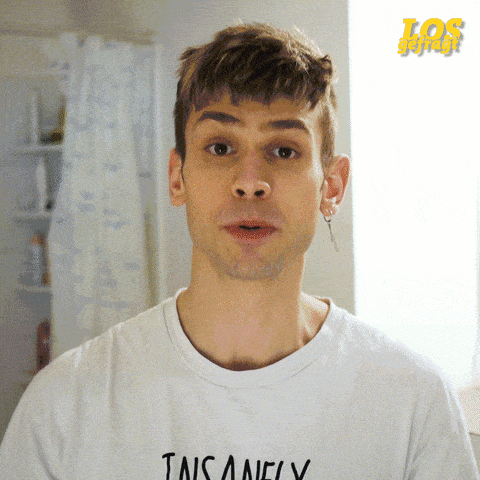
Because, the concept of religion and spirituality reminds me of chapters in my old history textbooks, where we might study the beliefs of ancient peoples. In those cases, the cultural beliefs would be met with intrigue and fascination and most importantly, a long-lasting desire to want to learn more. Even if not necessarily alongside a devotion to one of those sets of beliefs.
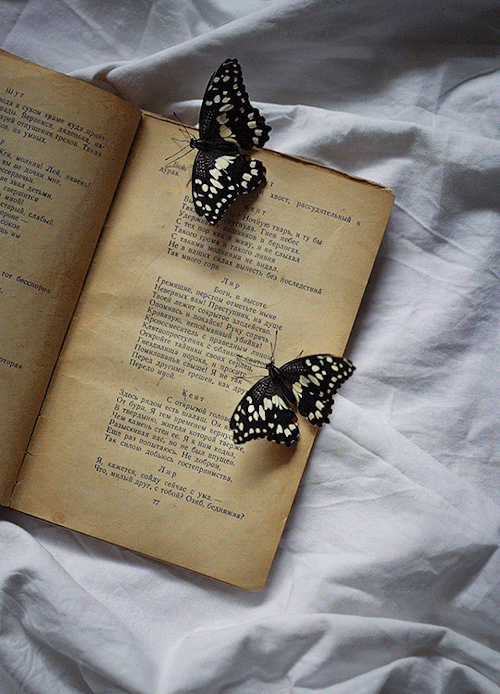
The Bible, the Torah, the Quran, the Lunyu…any of these sacred and meaningful texts can still be viewed by people with a more agnostic perspective like mine as profound pieces, as literary masterpieces because of the wisdom they can offer us all on an individual and societal level. If I find interesting passages in any of these, it doesn’t mean I need to commit to that specific religion or set of beliefs. I’m a writer, a poet, a translator…I live for passages that make me think deeper; that they are well-renowned texts is the icing on the case, because works like that tend to have lots of timeless messages that relate to us no matter how different our circumstances may be.

I’ve, granted, perused passages mainly from Western beliefs (Christianity, Catholicism, and Mormonism), but — despite my eagerness to gain some insight or deeper thought from the texts, I deviate from the norm, so to speak, since I don’t attend church.
This has intrigued some, because (reasonably) the community and environment of a church setting could help “bring me closer to Him” and so on. I understand that and respect that others that choose that path, but ultimately I have chosen a different path and am content with it 🙂
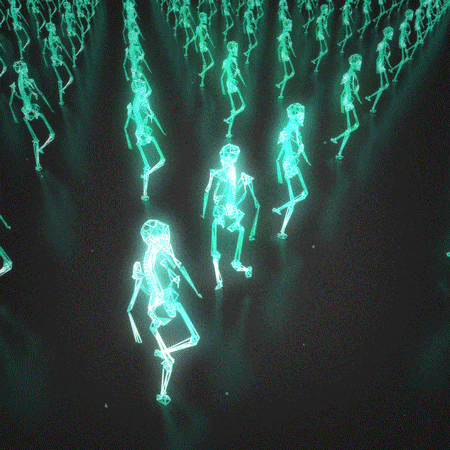
But I feel that in this day and age, to describe how my perspectives differ isn’t criminal — so many others other there are various and diverse in their own perceptions, so mine is just one among those many.

I’m more spiritual than religious; I like to consider the spiritual life within people and animals, for instance, and thus our innate connection with nature.
For some, then, going to church specifically can help them better find themselves. For me, long walks through nature and mindfulness are how I can better find myself. That is all.
If anything, this is also why I stan Stray Kids so much; not everyone in the group has the exact same religious/spiritual beliefs. Similar, yes. But how they got there individually likely isn’t all the same.
But!
That’s not what makes their individual and collective dynamics with each other so amazing to watch and admire and aspire towards.
Rather, it’s that they (from my understanding) have shared moral values and qualities that help lift each other up, things that have no doubt been enhanced by their individual perspectives on life, whether or not that came with a religion :)
Some may continue questioning my varied takes on life in that spiritual/religious sense.
Some may relate to it.
Others still may despise it.
But I can be alright with this deviation. Because none of us are exactly the same, and in the end, being true to ourselves in this area as well as to other parts of our lives?
That.
That’s what truly helps us become wiser and better people ✨💫
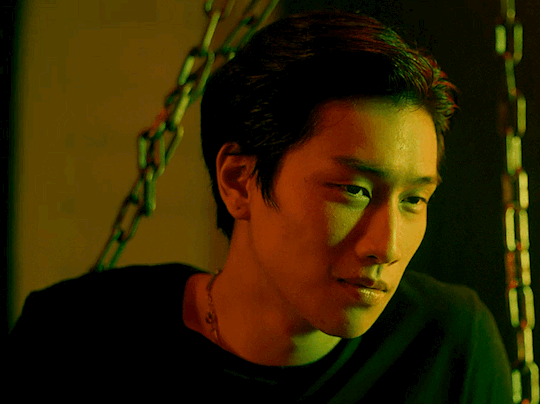
#self reflection#contemplative#emotional health#insights#mental health#religion#spirituality#finding myself#at peace#content#peace of mind#it’s okay to be different#nobody is exactly the same#beliefs#deep thoughts#deep thinking#open minded#the unknown
1 note
·
View note
Note
i find a lot of value in your blog if not necessarily comfort. i come from a place w one of the largest muslim populations in the world, and like many organized religions comfortably in the majority & systematically benefitting from inequality, i’ve witnessed and survived a lot of prejudice and abuse that (ostensibly) stems from how certain groups interpret islam’s teachings. like you, i was raised catholic but catholicism itself in this area is very much a result of colonialism & imperialism. to this day still, i cannot seem to find it within myself to separate the actions of believers from their belief. i don’t think of myself as an adherent, but i feel lucky that i’m able to see your perspective as one. at the same time i also envy you for not being saddled w this same baggage lol. in any case i wish u peace .
Salaam,
Your trauma is valid. It honestly wasn't until this last year during spiritual direction that I realized how much trauma I carried myself from my upbringing in Catholic institutions. It's very difficult to reconcile faith when you've had negative experiences with it in the past. Catholicism being forced upon my ancestors was not a selling point for me. Neither was the lack of education of my religion teachers, who threatened me with poor grades if I did not take consume Eucharist in middle school. Or the discrimination I experienced being openly LGBTQ at a Catholic high school.
It took me many many years, and more than four years of university level theology classes, to finally see the worthy tenets of Catholicism. I won't say Christianity as a whole because honestly I don't have personal experience with Protestantism. Liberation theology is the religious understanding I subscribe to in regards of Catholicism. The oppressed, who will always be with us, must be aided, loved, and liberated. We will never experience true "Catholicism" if we do not aid the poor and the impoverished, fight with the oppressed and the marginalized, and time and time again choose to love one another. I understand the Bible through a historical-critical lens, and I see it as a historical testament left behind by our spiritual ancestors, but not one we should interpret literally or as the fundamental word of God.
If people feel differently, it's sort of hard to argue with them. I've met Catholics who read the Bible and use it to justify all kinds of immoral behavior, from misogyny to homophobia to Islamophobia. They simply believe these things exist in the text, without any care for historical analysis or theological education. You can even throw theological study at them and they won’t believe it, they just won’t. It’s against their interpretation. But I can assure you, I've met equally as many Catholics (especially in my work) who do indeed live trying to emulate Christ's example as an oppressed, poor man of color.
I've spent the last year doing research for a textbook about ministry from the perspectives of people of color in the Catholic Church. The same issues many non+ex-Catholics have with the Church are the same issues many current Catholics inside the Church have. From the sex abuse scandals to women's ordination, to the colonization that forcibly converted millions- Catholics nation wide have expressed their horror. Black Catholics, Hawaiian Catholics, Indigenous Catholics throughout the Americas and so on have demanded the Church acknowledge it's impact on their history. They are theologians, lay ministers, ordained clergy both male and female, teachers, and volunteers. National parish leaders around the country are crying out and demanding the Church to address gun violence, oppression against women in the Church, racism and so on. They're just as angry and upset as the people who've left the Church. I got to talk to a theologian who was blacklisted by Catholic bishops for demanding women's ordination, and I felt like I was meeting a celebrity.
Don't despair, anon. No matter what your personal religious life, I can tell you with certainty that there are Catholics (and Muslims and Jews and so on!) who genuinely feel the way you do. Criticisms and all. And all this to say, maybe one day you'll be at peace with everything. Maybe you won't. You'll discover on the journey. Neither answer is wrong.
I hope this helps you.
10 notes
·
View notes
Note
I find it interesting that when white supremacists quote the scripture and use it as justification, Christians tend to act like these white supremacists "somehow" got the wrong message, or "somehow" crept into Christian communities.
Yet the very ways they "somehow" got the message wrong keep happening over and over again, which suggest that it's not a simple misinterpretation, because it keeps happening.
The church laid the foundation for the enslavement of Africans and Native Americans, and even before that, the church layer the foundation for centuries of brutal colonization done worldwide.
If we even focus on just America for a bit, the Puritans came and based their ideology on the "New world", Catholic missonarie and preachers forcibly converted people to Catholicism and forced them to abandon their own beliefs.
These people talked about the equality of all men on God's eyes, yet kept child slaves.
Frederick Douglass, in the first of his three autobiographies, wrote what became of his master when he became a Christian believer. What Douglass hoped would happen is that his master became more "Humane". This did not happen.
Douglass wrote, “If it had any effect on his character, it made him more cruel and hateful in all his ways.” Auld was ostentatious about his piety—praying “morning, noon, and night,” participating in revivals, and opening his home to travelling preachers—but he used his faith as license to inflict pain and suffering upon his slaves. “I have seen him tie up a lame young woman, and whip her with a heavy cowskin upon her naked shoulders, causing the warm red blood to drip; and, in justification of the bloody deed, he would quote this passage of Scripture—‘He that knoweth his master’s will, and doeth it not, shall be beaten with many stripes,’ ”
In the book, “White Too Long” (Simon & Schuster), Robert P. Jones, the head of the Public Religion Research Institute, a nonpartisan polling and research organization, marshals this and other data to lay out a startling case that “the more racist attitudes a person holds, the more likely he or she is to identify as a white Christian" and that "more than six in ten white Christians disagreed with the statement that “generations of slavery and discrimination have created conditions that make it difficult for blacks to work their way out of the lower class.”
So what does this say then? Because this is just a small small portion of white Christians making the same "misinterpretating the bible to justify racism" mistake.
I find it interesting the way you phrase this rebuttal. It doesn’t make a differentiation between Christian sects, which is extremely important when considering the theological ramifications of a religion on a culture. it also makes generalizations, which I won’t fault you for any more than simply pointing them out.
so just a reminder: I’m a Christian Catholic. I don’t speak for protestants, and especially not Puritans (ew).
I find it interesting that when white supremacists quote the scripture and use it as justification, Christians tend to act like these white supremacists "somehow" got the wrong message, or "somehow" crept into Christian communities.
“Christian” here is a very broad term, and I think it’s important to mention that Protestantism would be the correct term here. Ignoring the differences leads to generalizations that ignore the immense prejudice faced by Irish Catholics especially that only started to alleviate in the 1940s. The Nativism movement is a prime example of this prejudice. In studies of prejudice, you must separate Protestant sects and Catholicism, at the cost of academic integrity.
Take for example The Five Points:
“The Five Points was named after the intersection of five streets, and it was the one of the first black settlements post-emancipation years. Located within the Sixth Ward, it played a unique role in the interracial tensions, due to the high rate of prostitution and crime that occurred there.
After the mid-1840s, the Sixth Ward itself became known as the ‘Irish ward’ because of the high number of Irish immigrants who settled in Five Points. Because they too were outcasts of society, they went to the same residences the black New Yorkers did, changing what were previously exclusively black social spaces. Irish experienced a form of prejudice similar, but not entirely alike, to the black New Yorkers, being called derogatory names and being given the worst of the labor. It was with these connections that black New Yorkers and Irish settlers shared geographic, social, economic, and cultural space during the 1840s and 1850s in New York City.” - precis of ‘In the Shadow of Slavery’ by Leslie Harris
so in New York at least, the prejudice doesn’t seem to lessen when everyone’s ‘Christian’.
“In 1848, the Ladies’ Home Missionary Society of the Methodist Episcopal Church moved to Five Points to create a new city mission. Carroll Smith-Rosenberg, a historian, shows that the hiring of Louis M. Pease led their first mission. Both this effort and that of the Home itself were relatively popular in Five Points. The effect was not always positive, with missionaries removing children often the influence of ‘immoral’ parents forcefully.” (ibid)
That’s Episcopalian, right? What does the Catholic church say about that?
“The family must be helped and defended by appropriate social measures. Where families cannot fulfill their responsibilities, other social bodies have the duty of helping them and of supporting the institution of the family. Following the principle of subsidiarity, larger communities should take care not to usurp the family's prerogatives or interfere in its life. “ - CCC 2209
When Catholic missionaries unjustly took children from Native American families, that was wrong. To say it isn’t is to deny Church teachings.
Yet the very ways they "somehow" got the message wrong keep happening over and over again, which suggest that it's not a simple misinterpretation, because it keeps happening.
Very big generalization here, and your conclusions does’t follow your inference. First, ‘the very ways’ is extremely vague, but I’ll leave that alone, because this is Tumblr. Not every sentence or argument is perfect. “it keeps happening” can be blamed not on Church teachings themselves, but rather human nature. Also, ‘misinterpretation’ is the entire point of Protestantism even existing, which, in combination with your other generalizations, tell me that you don’t really know the way Catholic interpretation of Scripture works. One of the main reasons Protestantism even happened was because of the personal interpretation of Church teachings and Scripture.
The church laid the foundation for the enslavement of Africans and Native Americans, and even before that, the church layer the foundation for centuries of brutal colonization done worldwide.
If we even focus on just America for a bit, the Puritans came and based their ideology on the "New world", Catholic missionaries and preachers forcibly converted people to Catholicism and forced them to abandon their own beliefs.
You didn’t read my response if you’re replying with that about African slavery, because it simply historically wrong. In regards to the wrongs done against the Native Americans, I agree it was wrong, and it’s been condemned by the Church. It’s infantilizing an entire culture to presume such simplicity, but that’s beside the point. “Forced them to abandon their own beliefs” really doesn’t take into account the reason why Catholicism is so appealing to different cultures. Forceful baptisms don’t even work, and we don’t condone forceful conversions. Invalid and illicit according to church theology. Protestantism differs, because we’re different things.
These people talked about the equality of all men on God's eyes, yet kept child slaves.
Frederick Douglass, in the first of his three autobiographies, wrote what became of his master when he became a Christian believer. What Douglass hoped would happen is that his master became more "Humane". This did not happen.
Protestantism was an important part of the culture in the Douglass’ time, and obviously the master was a terrible man. I’ve read Frederick Douglass (minor in African-American studies does that to a person) and I know the kind of man his master was. He was thoroughly not a Christian, and if he’d even been a Catholic, he would have been automatically excommunicated. Because the Pope had put an immediate excommunication on any slave-owners. And Protestantism and Catholicism are different.
“the more racist attitudes a person holds, the more likely he or she is to identify as a white Christian" and that "more than six in ten white Christians disagreed with the statement that “generations of slavery and discrimination have created conditions that make it difficult for blacks to work their way out of the lower class.”
and 30% of ‘practising’ Catholics believe in transubstantiation. The question here is not what the members of the faith believe, but what Divine theology says. Catholicism has repeatedly disavowed racism, bigotry, and prejudice. An action to the contrary is against Church teachings.
So what does this say then? Because this is just a small portion of white Christians making the same "misinterpretating the bible to justify racism" mistake.
“white Christians” jeez, the sheer academic dishonesty. An important part of history is understanding how prejudice originates. so many historians talk about this (I personally like Morgan’s theory of the ‘visible outsider’ for the cause of racism but) and to ignore class, culture divide, socio-economic status, and substantiate an entire claim based upon race is very fundamentalist (the irony).
I could say so much more about this, but honestly, we both know neither of us are going to change our minds. You have something to prove, so I’m sorry history disagrees with you. if you want to believe Catholicism upholds white supremacy, nothing I can say will change your mind. I won’t be responding to anymore of your anons.
#asks#ask#will probably delete this one because nothing of much value is discussed#long#catholic#2021
9 notes
·
View notes
Text
Bible: The Sole Rule of Faith? by John Vennari
.

The Protestant believes himself to be on solid ground, because he says he believes and accepts the Bible and only the Bible, as the sole rule of Faith.
This is the central Protestant tenet of Sola Scriptura — the Bible alone is the sole rule of Faith. It is the Bible and only the Bible that is the pillar and mainstay of truth.
So the first question we have to ask is: how tenable is this Protestant tenet in the first place? Is the Protestant really on solid ground when he says that the Bible alone is the sole rule of Faith?
There is a well-known convert to Catholicism in the United States named Scott Hahn — a Protestant minister who became Catholic. Part of his conversion story gives helpful answers to this question (I personally wish Dr. Hahn would have become more traditional after his conversion, but that does not diminish the strength of the story).
Dr. Hahn had been a Presbyterian minister who, in his seminary days, was vehemently anti-Catholic. Subsequently, as a minister, he did a tremendous amount of Scripture study, because he wanted his sermons to be permeated in Scripture.
But the more he studied Scripture, the more he came to see that the truths that the Catholic believes, particularly manifested in the teachings of the early Church Fathers — Saint Jerome, Saint Basil, Saint Augustine — are firmly rooted in Sacred Scripture. These Church Fathers were Catholics. Every one of them was celebrating the Holy Sacrifice of the Mass!
I’m not going to go through his whole story, but I want to spotlight a crucial event that clinched his conversion. It was something that took place while he was teaching class.
There he was, a Presbyterian Minister — a Presbyterian Professor — teaching young adults.
And one of the brighter students in the class asked him, “Dr. Hahn, you know the way we Protestants believe that the Bible alone is the sole rule of Christian faith, and we follow the Bible and only the Bible — not the Bible and Tradition?”
Hahn said "yes".
The student said, “Well, where in the Bible does it say that?”
Hahn responded, “What a stupid question!”
As soon as Han said that , he said to himself, “You have never said that to a student before. You have never answered a student by insulting him.”
But the reason Hahn responded the way he did was because he knew he really didn’t have an answer.
Hahn said, “Well, there’s II Timothy, 3:16.”
But the student retorted, “No! II Timothy 3:16 says ‘All Scripture, inspired by God, is profitable to teach, to reprove, to correct, instruct in justice.’ It says Scripture is profitable! It doesn’t say we must believe in the Bible alone?”
So Hahn then said, “Well, look at what Our Lord says about Tradition in Matthew 15.”
Again, the student responded, “Well, no! Our Lord was not condemning all Tradition, but He was condemning the corrupt tradition of the Pharisees.”
So after a few more failed attempts at Scripture citations, Hahn announced that the class was out of time and they can pick up on this next week.
Now, Dr. Dr. Hahn knew that he had not answered the student’s question. And the student knew that he had not had his question answered.
So Hahn drove home that night in a cold sweat thinking, “What is the answer to that question?”
When he got home, he telephoned whom he said to be the top Protestant Scripture scholars in the United States. And he asked them, “Maybe I slept through this part of my seminary training, but you know the way we Protestants believe in the Bible alone and only the Bible, and not in Scripture and Tradition — where in the Bible does it say that?”
And to a man, each one of these Protestant scholars said, “What a stupid question!”
Then each of these professors invoked the same verse that Hahn had invoked: “Well, there’s II Timothy 3:16.” And Hahn responded as the student did, “No, this verse only says that Scripture is profitable, not that it must be the sole rule of Faith.”
Each of the professors also said, “Well, there’s Our Lord’s words in Matthew 15.”
And Hahn retorted, “No, Our Lord was not condemning all Tradition, but only the corrupt tradition of the Pharisees.” And further, Hahn said, Saint Paul instructs us in II Thessalonians 2:14 to stand fast and “hold the traditions which you have learned, whether by word, or by our epistle.”
And these tip-top scholars, these most eminent of Protestant theologians, had no answer.
It was then that Scott Hahn came to realize that the central, foundational principle of Protestantism — the Bible alone and only the Bible — is not Biblical!
This is a tremendous contradiction, it’s one of the reasons why I could never be a Protestant. Protestantism claims to base its entire belief system in the Bible alone, but the principle of “The Bible alone” is a non-Biblical principle; it is a principle that is nowhere found in the Bible.
No Basis in History
Secondly, the principle of “the Bible alone as the sole rule of Faith”, cannot be a true principle of Christianity because it has no basis in the history of Christianity.
How did the early Christians learn their Faith?
How was the Faith communicated to them?
How did Our Lord tell the Apostles to communicate the Faith, the truths which must be believed for salvation?
He commanded them, “go forth and teach all nations, baptizing them in the Name of the Father and of the Son and of the Holy Ghost”. He said to Peter, “Thou art Peter and upon this rock I will build My Church” (Matt. 16:18). And Saint Paul taught clearly that it is the Church that is the pillar and mainstay of truth (I Tim. 3:16).
Our Lord gave to Peter authority, and He commissioned the Apostles to preach in His name. “As the Father hath sent Me, I also send you” (John 20:21).
Our Lord wrote no books. Nor did He say to His Apostles: “Sit down and write Bibles and scatter them over the earth, and let every man read his Bible and judge for himself”, which is the essence of Protestantism — each individual reads the Bible and decides for himself what are the truths of Christianity. No! As I said, Our Lord established a Church to teach in His Name: “He that heareth you heareth Me, he that despiseth you, despiseth Me” (Luke 10:16). “And if he will not hear the Church, let him be to thee as the heathen and the publican” (Matt. 18:17).
The Church and the Faith existed before the New Testament. Only five out of the twelve Apostles wrote anything down at all! The Church was teaching and administering the Sacraments, the Apostles were forgiving sins, the Church was making martyrs for seven to ten years before one jot of the New Testament was set down on parchment.
The Church was spread throughout the entire Roman Empire before a single word of the New Testament was written. We had Catholic saints and martyrs before we had Gospels and Epistles.
The first Gospel was written by Saint Matthew, about 7 years after Our Lord left the earth. The next was the Gospel of Mark, written 10 years after Christ ascended into Heaven. The Gospel of Saint Luke was written 25 years after Our Lord’s Ascension, and the Gospel of John was written 63 years after Our Lord left the earth. The Apocalypse was written a good 65 years after the Ascension of Our Lord. And all of this was written, as Pope Leo XIII reiterates, under Divine inspiration.
So then, how did the early Christians become Christians and save their souls? By reading the Bible? No, because there was no New Testament.
We saw that the New Testament was not even completed until 65 years after Our Lord ascended into Heaven.
But this is not all.
For over three hundred years, the Church did not have all the books of the Bible compiled into one book.
And this brings us right to the question of Authority.
Because if you give me a book — call it The Bible — and you tell me that everything in that book is the infallible Word of God, the first thing I’m going to ask is, “Who says?”
Books don’t write themselves. Books by multiple authors don’t just compile themselves into one big book, and then proclaim itself to be the written Word of God.
No! Someone, or some social unit, which God Himself gave the authority to teach: to teach in His Name, to teach infallibly, must tell me this. Only an authority like that can tell me that this book is the written, infallible Word of God.
And it was the Catholic Church, at the Council of Carthage in 397 A.D., through the guidance of the Holy Ghost, that settled once and for all what was the Canon of the New Testament; that decided which books were divinely inspired and which were not.
You remember there were a number of other “Gospels” and “Epistles” circulating; some written by good and holy men but were not the inspired word of God (for example, the Epistles of St. Clement). Others were just plain fabrications, such as the so-called Gospel of Pilate or the Gospel of Nicodemus.
And it was the Catholic Church that decided which books were divinely inspired and which were not. It was the Catholic Church that put the New Testament together, joined it to the Old Testament, and gave the Bible to the world. It was the Catholic Church that produced the Bible, it was not the Bible that produced the Church.
Thus, as I said, the Protestant principle of the “Bible Alone” has no basis in history. The Catholic religion is the only religion that can answer the question: “Who Says?” — that is, “who says the Bible is the written word of God?”
Let there be Gutenberg!
But the problems don’t stop there. Because if it is necessary to read the Bible for me to be saved, if faith cometh only by reading the Bible, then faith cometh only by the invention of the printing press, which was not invented until the middle of the 15th Century by Johannes Gutenberg.
Before that, all books were hand-copied. It was a laborious, time-consuming and expensive venture. It was not possible to get a copy of the Bible into the hands of every Catholic, or even one to every Catholic family.
We’ve only had Bibles widely distributed for a little more than 400 years. So what about the millions of Christians who lived before that, who would go through their entire lives and never even see a Bible or a printed text of the New Testament?
Now, the theory of “The Bible Alone” — that is, following the Bible alone as the path to salvation — presupposes that the Bible should have been available to all men from the foundation of Christianity. Well, we already saw that this is not the case. We saw that the books of the New Testament were not written until 65 years after Our Lord left the earth. And we saw that the Christian World did not even have a complete, compiled Bible until the year 397 A.D.; and were not even available for mass distribution until the middle of the 15th Century. So the principle of the “Bible Alone” has no basis in history.
Conflicts with Reason
Finally, the principle of the “Bible Alone” is contrary to reason. Because if you give me a book, and you tell me that everything in that book is the written Word of God, and that I have to read it and believe the Bible Alone for salvation, then the first thing I say to you is, “Fine, then you leave me alone. You just give me that Bible, and I’ll decide what is the true meaning of Scriptures.”
This essentially is the Protestant system. If you go to a Lutheran congregation, you are only buying into Martin Luther’s private interpretation of the Bible.
And if you go to a Methodist congregation, you are only subscribing to another man’s private interpretation of the Bible — a character named John Wesley.
And if you go to a Presbyterian congregation, you’ve only bought into the private interpretation of John Knox, the founder of that group.
And if you are a member of a Protestant denomination, there is no reason why you could not stand up and say to the preacher: “Brother, I believeth you walketh not in truth. Your interpretation is wrong! I have found the correct meaning.”
And if you are zealous enough, and eloquent enough, and determined enough, you could start to preach, and you could start your own Protestant congregation — because that is how they all started.
And we see that this is the consequence of private interpretation of the Bible. Because, according to the Protestant system — every man reading the Bible and coming to his own interpretation — the logical conclusion of this is that there could be as many Protestant religions as there are individuals. There is no church for them established by Christ to teach in His name! There is no authority established by God to tell me that I might have made a mistake!
So this is one of the many reasons I could never be a Protestant. We see that the “Bible Alone” principle is contrary to Scripture, the “Bible Alone” principle is not supported by history, and the “Bible Alone” principle is contrary to reason; for it ends up in thousands of conflicting interpretations of Scripture, and is contrary to what Our Lord established His Church to be.
#catholicism#traditional catholic#catholic#christianity#heaven#love#jesus christ#its the truth#catholic saints#catholic faith#protestant#Protestantism#seek the truth#truth
3 notes
·
View notes
Text
From Mormon to Atheist
Whenever someone says that people don’t change I wonder what stubborn assholes you had the misfortune to meet because I’ve changed so spectacularly from who I used to be that when I begin to tell people my story they look at me in shock.
I grew up in a household where Fox News was on all the time, Glen Beck had an opinion that mattered, and church and religion were considered the “cornerstone” of my life. I was your average goody-two-shoes Mormon, friendly, smiling brightly to hide how guilt ridden I was. My parents had converted to the faith from Catholicism, and were always asked, everywhere we visited, to tell the story again. For me, it meant a level of pride-- Mormons grow up listening to stories about Joseph Smith trying to find which church was true until a divine vision tells him they’re all wrong and to make his own. The pursuit of truth and being “in the right” was important to our family and, in very real sense, it was this desire that drove me away from Mormonism and religion in general in the end.
We weren’t great Mormons to begin with. Behind closed doors, we enjoyed thriller and sci-fi R rated films, I liked to swear (though I avoided saying fuck & God for years) and we did our best to remain open minded. We loved the Colbert Report and Jon Stewart. I invited my friends to church with me like any mormon kid does, sure, but I had no desire to force them to change or to only be friends with mormon kids, and more often than not I was more comfortable with my nonreligious friends because they didn’t silently judge me. But I tried, ya know? I would read my scriptures and pray and try to do all the things and then wonder why I was so fucking depressed and guilt ridden. I hid my doubts for a long time. I hoped going off to BYU would get rid of them.
I BYU-Idaho for a single semester. Chemistry major, if you can believe that. I lived in the shadow of the Temple and felt guilty that I never wanted to go inside. Professors led opening and closing prayer in class. I went on dates with boys who were getting ready to leave on their missions and with men who had come back and were antsy to get married. Neither appealed to me. And then, near the end of the semester I had a nervous breakdown.
I didn’t want to go home for the holidays. I worried that I would lose whatever spiritual progress I had made. My family wasn’t as religious as I was anymore. I was horrified with myself, I mean I didn’t want to see my family? That may not mean much to you, but I have always had a very close relationship with my family. We’ve been through a lot. And Mormons champion this message of “Families can be together forever” and I was suddenly struck by the blatant hypocrisy. If you’ve never been to a Fast & Testimony meeting, it’s basically this open confessional where you can go up to the podium and proclaim how YOU KNOW THIS CHURCH is true. A lot of folks tell tearful stories of family members cutting them off or even cutting their own family members off because they didn’t “understand” or because they were proud to make the church the center of their lives.
By the time this happened, my brothers were already on the way out. One of them had been rebelling for years, and the other was simply trying not to rock the boat but even I was growing exhausted by the constant arguments. Since I was the oldest, I felt I wasn’t allowed to be vocal about my own doubts because I was supposed to be the “good example” and i internalized it instead. And when I came back from school, somehow, I had become the spiritual leader of the family.
My dad came to me and tell me about he regretted not having a last drink with his dad before he died of cancer, and how he had missed that opportunity to bond because of his religious beliefs. My mom came to me with her own concerns about women and priesthood. And because my brother argued the church wasn’t true, they looked into church history (you’re not supposed to read church history from non-church sources because the DEVIL would do anything to draw you away, which in of itself is such a red fucking flag) and after a lot of thought and consideration, they had begun to doubt and wanted to stop attending church for a bit.
And then, just after the new year, we sat down for a Family Home Evening. Mormons do it every Monday night, but this one was different. This time we didn’t have someone lead a lesson or read from the scriptures. Instead we talked about how we felt about the Church of Jesus Christ of Latter Day Saints and by the end, it was official.
We weren’t Mormon anymore.
After that I tried to figure out what I believed. I started studying religion from an academic standpoint, looking into the history, the mythology. I was curious about Ancient Sumerian myths and the origins of the bible. I switched to a community college, and when I asked myself what I believed I realized that I only ever wanted to believe things that were true and proven to be true. My faith had been taken advantage of. And If God did exist, he was such a raging asshole that I saw no point in worshiping him on a “maybe”
So, I’m now I’m an atheist who celebrates pagan holidays because I enjoy the ritual and find comfort in nature and the passing of the seasons. I haven’t watched Fox News in years. Politically, I’d describe myself as a humanist and very anti-capitalist. I support Andrew Yang.
And I’m capable of change.
#writeblr#writeblogging#my life#real life#blog#blog post#religion#LDS#Mormon#ex-mormon#atheist#humanist#yanggang#andrew yang#God#change#leaving religion#leaving mormonism#nonreligious#ask me about it#if you want to know more I guess#or you can#ask me for advice#afuckingpeasant#a fucking peasant#my story
29 notes
·
View notes
Text
Pluralistic: 25 Mar 2020 (National Emergency Library, Kaiser threatens nurses, no more O'Reilly events, White House pastor's coronavirus funnies, automatic bill-relief notices, Mat Ricardo's lockdown TV, Xi's internal enemies, coronavirus meets immigration detention, doctors hoard choloroquine, toilet paper separator, Conzealand goes virtual, the Postal Plan, Volante's masks, and more!)
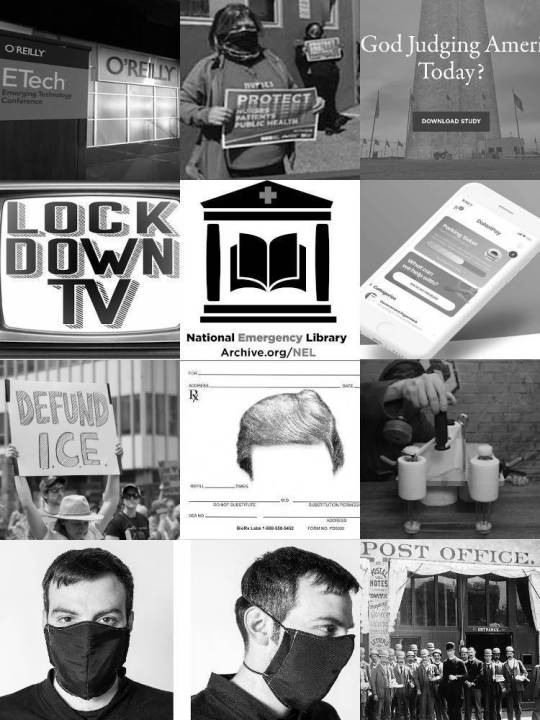
Today's links
Internet Archive lifts lending restrictions on ebooks: They're calling it the "National Emergency Library."
Kaiser threatens to fire Oakland nurses who wear their own masks: They're treating positive patients from a cruise ship with insufficient PPE.
No more O'Reilly events: We've been here before, kinda.
Trump's Bible study teacher thinks coronavirus is God's wrath: For homosexuality, China, environmentalism, Catholics, and women in the workforce.
A chatbot that petitions companies for financial relief during the crisis: Donotpay's robot lawyer is here for you.
East London showman Mat Ricardo's Youtube playlists: Lockdown TV for "comedy, variety, circus, magic, dance, music."
Xi's enemies sense weakness: Autocracies are only as good as their last crisis-response.
Locked down in a lockup: Coronavirus meets immigration detention.
Doctors hoard choloroquine: MDs to lupus sufferers, "Drop dead."
Toilet paper separator: Covid crafting for household essentials.
Conzealand goes virtual: The first time a Worldcon isn't in person since WWII.
Posties are key to America's emergency response: The only agency that could deliver covid meds to every US household in a single day.
Volante's masks for covid responders: Streetwear for Superheroes.
This day in history: 2005, 2010, 2019
Colophon: Recent publications, current writing projects, current reading
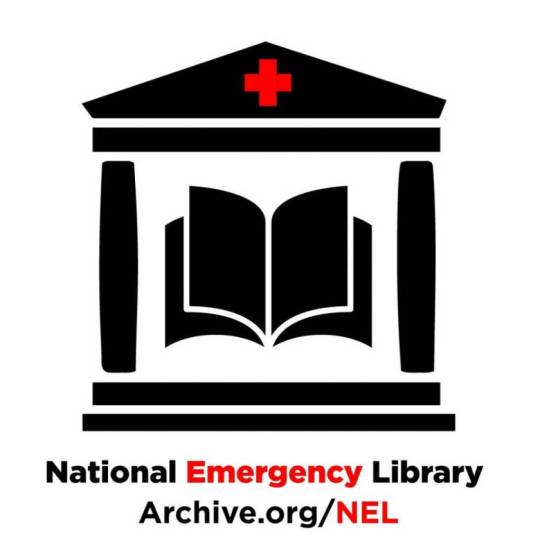
Internet Archive lifts lending restrictions on ebooks (permalink)
The amazing people at the Internet Archive maintain a digital lending library: they buy and scan one copy of every book (pretty much every book, ever) and lend it out to one person at a time.
They've just announced that during the crisis, they are lifting the one-borrower-at-a-time restriction and allowing unlimited borrowing, "to meet the needs of a global community of displaced learners". They call it the "National Emergency Library."
https://blog.archive.org/2020/03/24/announcing-a-national-emergency-library-to-provide-digitized-books-to-students-and-the-public/
It's got more than a million titles.
https://archive.org/details/nationalemergencylibrary
They're calling on all who can afford it to buy books to support authors and booksellers during the crisis, Authors can also request to have their titles removed:
https://docs.google.com/document/d/1QjErbouWG7pUlzcxPcRk4YEtbYs8ItlVTgLa1DfGh68/edit
It's a bold move, but it's got widespread support. Here's a list of endorsers. I signed on too.
https://docs.google.com/document/d/1vkl3RX4CzpRTQsoG1tsdHC0foYiU7A8U_Vt1UyVboP8/edit
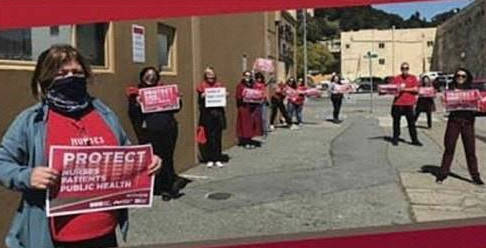
Kaiser threatens to fire Oakland nurses who wear their own masks (permalink)
Nurses at Kaiser Permanente in Oakland are treating patients from the Grand Princess cruise ship, at least 21 of whom have tested positive for covid-19. The nurses are working without adequate PPE, thanks to a national shortage (and asshole hoarders).
https://theintercept.com/2020/03/21/oakland-coronavirus-hospital-kaiser/
Nurses who report for work wearing their own N95 masks have been threatened with immediate dismissal for "insubordination."
Akela Lacy from The Intercept asked Kaiser's Marc Brown about it, but he ducked the question.
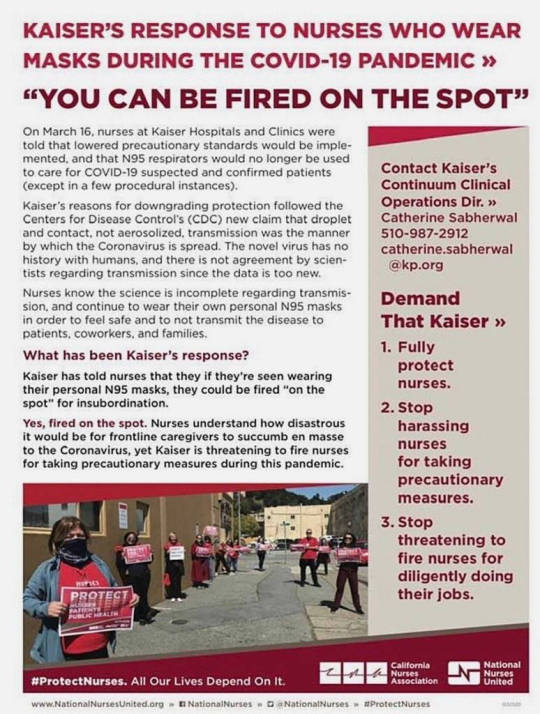
https://theintercept.com/2020/03/24/kaiser-permanente-nurses-coronavirus/
The nurses say that their supply cupboards are locked down, and they're being asked to treat potentially infected patients whether or not they can find someone to unlock the supply cupboard.
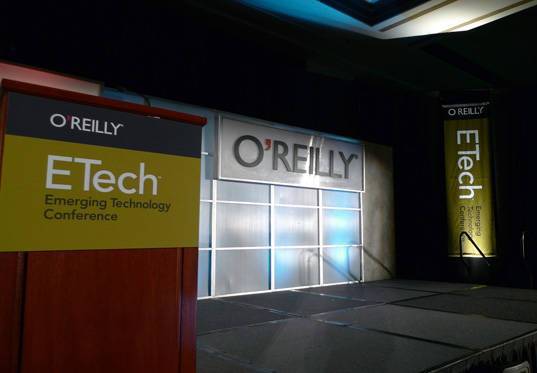
No more O'Reilly events (permalink)
I attended my first O'Reilly conference in, I think, 1997? And I sponsored my first O'Reilly con, the first P2P con, in 2001 (?). I spent years on the committee for the Emerging Tech conference, and I've keynoted more O'Reilly cons than I can recall.
These events have been some of the most important gatherings I've ever attended: places where I made lifelong friends and collaborators (I first met my wife at an Etech con), and learned so much.
This is (obviously) not a good time to be in the event business. For perfectly good – and nevertheless so, so sad – reasons, O'Reilly has just exited the in-person conference business.
Forever.
https://www.oreilly.com/conferences/from-laura-baldwin.html
"Without understanding when this global health emergency may come to an end, we can't plan for or execute on a business that will be forever changed as a result of this crisis. With large technology vendors moving their events completely on-line, we believe the stage is set for a new normal moving forward when it comes to in-person events."
The covid collapse feels a lot like the post-911/dotcom crash moment. That was when we lost the Etech conference, whose focus had always been "what are the most speculative things the weirdest nerds are doing?" No one had a budget for that kind of thing after the crash.
The dotcom crash and the loss of Etech were hugely traumatic, but there WERE silver linings. Etech's crash begat FOO Camp, consistently the best events I've ever attended – small gatherings of smart weirdos who programmed their own conference in realtime.
It also created a brief moment of breathing space in tech, which had its origins in driven tech enthusiasts but had been steadily colonized by buck-chasers who upped sticks and quit when the money disappeared from the sector. For a brief moment, mid-decade, people who wanted to build meaningful technologies for users – not investors – could hire engineering talent and find office space. That was ended by the finance bubble that shattered in 2008, but for a while there, it was good.
It's brutal to think that I'll never go to another O'Reilly con, but my hopeful inner voice tells me that there might be something as wonderful on the horizon as FOO Camp. I'm so sorry for all the O'Reilly conference staff, who are amazing and have done so much good work.
As O'Reilly CEO Laura Baldwin writes, "No offense to 'Netflix and chill' but how about we move toward 'Code and conquer' as our new mantra during these trying times?"

Trump's Bible study teacher thinks coronavirus is God's wrath (permalink)
Wanna hear about an extreme religious far-right bigot who thinks that coronavirus is God's punishment for Chinese excess, American tolerance for homosexuality, and environmentalism?
https://theintercept.com/2020/03/24/trump-cabinet-bible-studies-coronavirus/
Ralph Drollinger is an evangelical pastor. He says Catholicism is "the world's largest false religion." He says women working outside the workplace is against scripture. He runs Capitol Ministries, whose goal is to have 200 ministries in 200 world capitals.
Drollinger may sound like a garden variety Christian Taliban, but he's awfully distinguished.
For one thing, he runs regular Bible study classes…at the White House.
His scriptural lessons: God would approve of kids in cages. God also wants lower taxes on rich people.
His twice-weekly Capital Hill Bible classes are regularly attended by 52 GOP lawmakers, sponsored by Kevin McCarthy [R-CA] and John Thune [R-SD].
His Wednesday White House Bible study classes are attended by Ben Carson, Betsy DeVos, Alex Azar, and Mike Pompeo. Pence, too!
His organization has received official endorsements from Joni Ernst, James Lankford and other GOP senators.
This anti-Catholic, homophobic, sinophobic, anti-enviromentalist, lunatic is squarely in the mainstream of Republican thought.

A chatbot that petitions companies for financial relief during the crisis (permalink)
The $3/month DoNotPay service has added a new covid-19 service: automatically petitioning the companies that bill you for mercy based on the coronavirus econopocalypse.
https://www.theverge.com/2020/3/25/21192765/donotpay-rent-bill-delay-chatbot-coronavirus-extension-laws-pandemic
Using a chatbot, you determine which of your bills are eligible for relief. Then it generates a "compassionate and polite request" seeking help. If the company does not comply, it follows up with a firmer letter citing relevant state/federal laws.
https://donotpay.com/
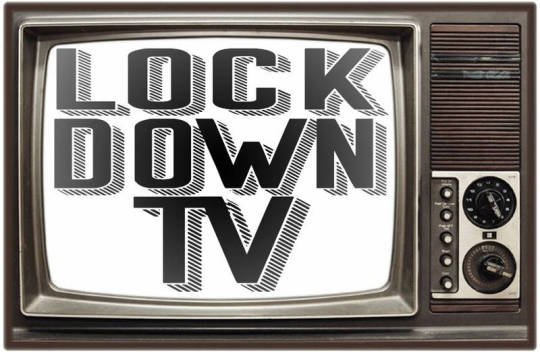
East London showman Mat Ricardo's Youtube playlists (permalink)
Under normal circumstances, showman MatRicardo is either traveling around doing his juggling and conjuring act, or hosting amazing variety show nights in east London. Neither of those are an option, now, obvious.
Instead, Ricardo is curating playlists of "comedy, variety, circus, magic, dance, music and other kinds of culture and entertainment to distract and amuse."
https://www.matricardo.com/blog/2020/3/17/lockdown-tv
https://www.matricardo.com/blog/2020/3/24/lockdown-tv-week-2
Highlights:
Kids in the Hall: "I speak no English"
https://www.youtube.com/watch?v=6vgoEhsJORU
Gene Kelly: "Summer Stock"
https://www.youtube.com/watch?v=fFJrV3pI5Zs
"The Knife-Throwing Mother & her Children (1950s)"
https://www.youtube.com/watch?v=CHxodb2uUhQ
Mat Ricardo: "How to charm a German audience"
https://www.youtube.com/watch?v=95ECcHLvRYA
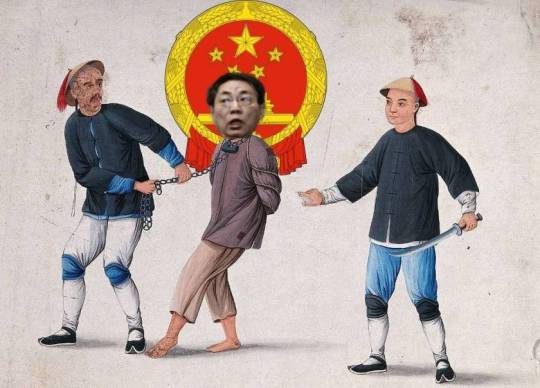
Xi's enemies sense weakness (permalink)
Autocracies are intrinsically unstable because their have-nots (who tend to be numerous) believe that they have no path to becoming haves, and see no legitimate purpose to preserve the social order.
China has stabilized its autocracy by simultaneously lifting hundreds of millions out of poverty and by using internet surveillance to both neutralize dissidents and spot its most corrupt and dangerous politicians.
But under Xi, internet surveillance has primarily become a weapon for spotting and neutralizing dissidents, and less so a way of spotting self-dealing technocrats and shutting them down. This created "authoritarian blindness," which meant Xi didn't spot or respond to Wuhan in good time.
https://pluralistic.net/2020/02/24/pluralist-your-daily-link-dose-24-feb-2020/#thatswhatxisaid
This failure ruptured Chinese public confidence in Xi, and emboldened his critics. Ren Zhiqiang (a party "princeling" whose father was a top Mao official, who made a fortune in real-estate and has been an outspoke Xi critic) issued a "viral" jeremiad against Xi this month.
Ren's post, "An official call to arms against Xi: The clown who insists on wearing the emperor's new clothes," spread on Twitter and other foreign services (he has been banned from Wechat for years).
https://asiatimes.com/2020/03/as-virus-recedes-in-china-anti-xi-revolt-spreads/
Ren disappeared shortly thereafter and is said to have been sentenced to 15 years in a secret prison near Beijing where his interrogators have been ordered to mete out "harsh treatment" to the 70-year-old.
Ren is a bellwether for other Chinese power-brokers, many of whom resent Xi and his power-consolidation techniques, such as his 2018 corruption purge that preferentially targeted corrupt officials who supported Xi's rivals.
https://web.archive.org/web/20181222163946/http://peterlorentzen.com/wp-content/uploads/2018/11/Lorentzen-Lu-Crackdown-Nov-2018-Posted-Version.pdf
These grandees have been sharpening their knives for Xi for years, and coronavirus has made him vulnerable. Ren was the first to turn on him publicly, but I'm sure he won't be the last.

Locked down in a lockup (permalink)
You know what's more terrifying and frustrating than being locked down at home during a coronavirus pandemic? Being imprisoned during a coronavirus pandemic, crammed in with others, deprived of soap and supplies.
It's very bad in regular jails and prisons, but if anything, it's even worse in ICE's gulags, where thousands of law-abiding long-term US residents – and asylum seekers – have been detained by the Trump administration in order to please his sadistic base.
For example, Ian has lived in the US for 20 years. His wife and children are US citizens. He was detained while awaiting a decision on his spousal visa. His wife is a nurse treating covid patients. His children miss their father.
https://www.themarshallproject.org/2020/03/24/everybody-s-scared-panic-at-immigrant-detention-center-after-positive-coronavirus-test
Ian has a heart condition that puts him at severe risk if he contracts coronavirus. He's in a 40-person dormitory with a recent arrival from China who is exhibiting symptoms.
He's in NJ's Essex detention facility, which is serviced by Corecivic, formerly Corrections Corporation of America, a notorious human rights abuser with a long history of beltway banditry while running private prisons. Some detainees there are on hunger strike.
One of the medical staffers there was confirmed by ICE to have contracted coronavirus. The next day, ICE denied that he was medical staff. ICE would not comment on the contradiction.
(Image: Fibonacci Blue, CC BY)

Doctors hoard choloroquine (permalink)
After Trump made misleading statements about the safety and efficacy of treating covid-19 with chloroquine, members of his cult began dropping dead of overdoses on the antimalarial drug.
https://www.cnn.com/2020/03/23/health/arizona-coronavirus-chloroquine-death/index.html
But it wasn't just low-information Trumpers who took the advice to heart. Pharmacists are seeing surges in massive orders of chloroquine from doctors and even dentists who are self-prescribing in order to hoard, and then lying about it when the pharmacists ask for explanations.
https://www.propublica.org/article/doctors-are-hoarding-unproven-coronavirus-medicine-by-writing-prescriptions-for-themselves-and-their-families
This hoarding behavior deprives people who rely on chloroquine for conditions like rheumatoid arthritis and lupus of their medication during a pandemic emergency.
"People are losing their minds about this product. We're selling so much of this stuff and people are just stockpiling it prophylactically if anybody in their family gets sick — they're just holding on to it." -Brian Brito, Miami pharmacy owner.
"Currently, both nationally and in West Virginia, some prescribers have begun writing prescriptions for these drugs for family, friends, and coworkers in anticipation of Covid-19 related illness." -West Virginia Board of Pharmacy

Toilet paper separator (permalink)
The Toilet Paper Splitter: a DIY project to separate a single two-ply roll into two single-ply rolls. Requires two paint rollers, a couple bolts, a rubber band, and some stiff metal for a handle.
https://www.youtube.com/watch?v=-JEfCAFHcPk

Conzealand goes virtual (permalink)
The World Science Fiction Convention began in 1939, when 200 sf fans who'd come to New York for the World's Fair gathered together (while explicitly excluding the leftist "Futurian" writers, who held their own counter-convention).
https://en.wikipedia.org/wiki/1st_World_Science_Fiction_Convention
Since then, there have been 77 Worldcons in total, one per year, excluding 1942/3/4/5, during which WWII intervened.
This year's Worldcon is Conzealand, the first Worldcon in New Zealand. Except it won't be. The organizers have wisely decided to move to a virtual event.
The hotels are allowing for cancellations, though there's some work to be done to allow the organizers to do mass cancellations for their group block. Different airlines have different rules regarding cancellations.
https://conzealand.nz/hotels?utm_source=CoNZealand
They're expecting to offer limited refunds to participants who don't want to a virtual con experience. They'll be offering a new online rate by April 15, and kids memberships are refundable now (but they ask you to forebear as their own personal funds are on the line).
Potential panelists are requested to put some thought into how they might help a virtual con with its programming.
This is incredibly disappointing, of course.I know the organizers and visited Wellington and the venue, both of which are incredible.
https://conzealand.nz/blog/2020/03/25/conzealand-special-announcement
I've been looking forward to attending for years. But it was the right call to make. it won't be the last such disappointment, either.
Please consider supporting the organizers by buying an online membership once they're offered and attending the con from wherever you are.
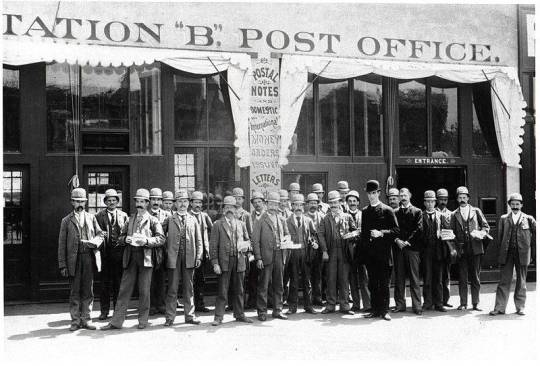
Posties are key to America's emergency response (permalink)
The USPS is amazing. A fully self-supporting federal agency that provides universal service as well as good, well-paid jobs with benefits and pensions. It's also a vital lifeline during crises.
https://www.wired.com/story/us-postal-plan-coronavirus-vaccine-doomsday/
Since the Cold War, posties have been integral to America's crisis plans. They were once deputized to catalog the dead and the living after a nuclear holocaust, distributing Safety Notification Cards (POD Form 810). Mail trucks would have been repurposed as ambulances.
Both Obama and GWB integrated posties into their plans for biological attacks, planning to have masked and gowned letter carriers deliver Cipro door to door (the "Postal Plan").
https://obamawhitehouse.archives.gov/the-press-office/executive-order-medical-countermeasures-following-a-biological-attack
As the DHS noted in its prep documents, the USPS is the only federal agency that could knock on every door in America in a single day.
When (if?) effective covid meds are available, it's likely a postal worker will deliver them to you.
Now is a good time to remember that the GOP have been trying to dismantle the universal, self-funding, vital USPS for decades, so that private carriers like UPS and Fedex can cream off the most profitable parts of its business and leave rural Americans in the cold.

Volante's masks for covid responders (permalink)
I've long admired (and worn) clothing from Volante Design, whose "streetwear for superheroes" is made by well-paid, onshore workers and is cosplay-adjascent — the kind of thing you can wear out and about, but also to a con.
Now, they're making masks for covid responders.
The masks are made from cloth and can protect N95 masks from contamination as they are reused (they have a pocket for this purpose). They can also prevent you from touching your face, and partially contain coughs when medical masks are not available
https://www.volantedesign.us/
They're seeking donations to cover the cost of making these and shipping them to orgs that have requested cloth masks:
https://docs.google.com/spreadsheets/d/1txEanDkIrJ5GNfSk-zlXkTlB-bQPNRN_Y69qEwmdme8/htmlview
A $105.50 donation lets them make 50 masks. They're also selling them on a sliding scale to those in need.

This day in history (permalink)
#15yrsago Matrix online game hires real actors to play in-game characters http://pc.gamespy.com/pc/the-matrix-online/598441p1.html
#15yrsago Fox is advertising on Grokster, also suing to put Grokster out of business https://web.archive.org/web/20051018083600/http://publications.mediapost.com/index.cfm?fuseaction=Articles.san&s=28535&Nid=12722&p=244505
#15yrsago US sabotaging efforts to create humanitarian copyright and patent policies https://web.archive.org/web/20050916104840/http://www.corante.com/copyfight/archives/2005/03/25/united_states_v_wipos_development_agenda.php
#15yrsago Ex-coder's account of life as a bike courier https://web.archive.org/web/20050323071902/http://www.kuro5hin.org/story/2005/3/19/133129/548
#10yrsago Profit-sharing arrangements among Somali pirates https://web.archive.org/web/20100323020702/https://www.undispatch.com/somali-pirates-buisiness-model
#1yrago Peak Indifference: are we reaching climate's denial/nihilism tipping point? https://www.wired.com/story/we-might-be-reaching-peak-indifference-on-climate-change/
#1yrago London developer makes last-minute changes to lock poor kids out of "communal" playground https://www.theguardian.com/cities/2019/mar/25/too-poor-to-play-children-in-social-housing-blocked-from-communal-playground
#1yrago Chinese censors incinerate entire run of a kickstarted Call of Cthulhu RPG sourcebook https://www.youtube.com/watch?v=G9Urosc-JEY
#1yrago The Vessel: a perfect symbol for the grifter capitalism of New York City's privatized Hudson Yards "neighborhood" https://thebaffler.com/latest/fuck-the-vessel-wagner
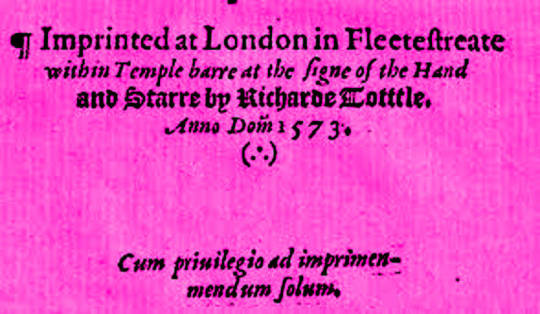
Colophon (permalink)
Today's top sources: Wendy Hanamura (https://twitter.com/whanamura), Geekologie (https://geekologie.com/), Naked Capitalism (https://nakedcapitalism.com/).
Currently writing: I'm getting geared up to start work my next novel, "The Lost Cause," a post-GND novel about truth and reconciliation.
Currently reading: Just started Lauren Beukes's forthcoming Afterland: it's Y the Last Man plus plus, and two chapters in, it's amazeballs. Last month, I finished Andrea Bernstein's "American Oligarchs"; it's a magnificent history of the Kushner and Trump families, showing how they cheated, stole and lied their way into power. I'm getting really into Anna Weiner's memoir about tech, "Uncanny Valley." I just loaded Matt Stoller's "Goliath" onto my underwater MP3 player and I'm listening to it as I swim laps.
Latest podcast: Data – the new oil, or potential for a toxic oil spill? https://craphound.com/podcast/2020/03/23/data-the-new-oil-or-potential-for-a-toxic-oil-spill/
Upcoming appearances:
Quarantine Book Club, April 1, 3PM Pacific https://www.eventbrite.com/e/quarantine-book-club-cory-doctorow-tickets-100931360416
Museums and the Web, April 2, 12PM-3PM Pacific https://mw20.museweb.net/
Upcoming books: "Poesy the Monster Slayer" (Jul 2020), a picture book about monsters, bedtime, gender, and kicking ass. Pre-order here: https://us.macmillan.com/books/9781626723627?utm_source=socialmedia&utm_medium=socialpost&utm_term=na-poesycorypreorder&utm_content=na-preorder-buynow&utm_campaign=9781626723627
(we're having a launch for it in Burbank on July 11 at Dark Delicacies and you can get me AND Poesy to sign it and Dark Del will ship it to the monster kids in your life in time for the release date).
"Attack Surface": The third Little Brother book, Oct 20, 2020. https://us.macmillan.com/books/9781250757531
"Little Brother/Homeland": A reissue omnibus edition with a new introduction by Edward Snowden: https://us.macmillan.com/books/9781250774583
24 notes
·
View notes
Note
Can you elaborate on Erusamus and the reformation please, or at least point me toward sources? Politics make more sense than philosophy to me, so I see the reformation through the lense of Henry VIII, or the Duke of Prussia who dissolved the teutonic order, or France siding with the protestants during the 30 Years War because Protestants > Hapsburgs
So sorry to take so long!
If you needed this answer for academic reasons, given that summer term is pretty much done I’m probably too late to help, but I hate to leave an ask unanswered.
HELLA LONG ESSAY BENEATH THE CUT SORRY I WROTE SELF-INDULGENTLY WITHOUT EDITING SO THERE IS WAY MORE EXPLANATION THAN YOU PROBABLY NEED
Certainly religion has been politicised, you need look no further than all the medieval kings having squabbles with the pope. Medieval kings were not as devastated by the prospect of excommunication as you’d expect they’d be in a super-devout world, it was kinda more of a nuisance (like, idk, the pope blocking you on tumblr) than the “I’m damned forever! NOOOOOOO!” thing you’d expect. I’m not saying excommunication wasn’t a big deal, but certainly for Elizabeth I she was less bothered than the pope excommunicating her than the fact that he absolved her Catholic subjects of allegiance to her and promised paradise to her assassin (essentially declaring open season on her).
I think, however, in our secular world we forget that religion was important for its own sake. Historians since Gibbon have kind of looked down on religion as its own force, seeing it as more a catalyst for economic change (Weber) or a tool of the powerful. If all history is the history of class struggle, then religion becomes a weapon in class warfare rather than its own force with its own momentum. For example, historians have puzzled over conversion narratives, and why Protestantism became popular among artisans in particular. Protestantism can’t compete with Catholicism in terms of aesthetics or community rituals, it’s a much more interior kind of spirituality, and it involves complex theological ideas like predestination that can sound rather drastic, so why did certain people find it appealing?
(although OTOH transubstantiation is a more complex theological concept than the Protestant idea of “the bread and wine is just bread and wine, it’s a commemoration of the Last Supper not a re-enactment, it aint that deep fam”).
I’ve just finished an old but interesting article by Terrence M. Reynolds in Concordia Theological Quarterly vol. 41 no. 4 pp.18-35 “Was Erasmus responsible for Luther?” Erasmus in his lifetime was accused of being a closet Protestant, or “laying the egg that Luther hatched”. Erasmus replied to this by saying he might have laid the egg, but Luther hatched a different bird entirely. Erasmus did look rather proto Protestant because he was very interested in reforming the Church. He wanted more people to read the Bible, he had a rather idyllic dream of “ploughmen singing psalms as they ploughed their fields”. He criticised indulgences, the commercialisation of relics and pilgrimages and the fact that the Papacy was a political faction getting involved in wars. He was worried that the rituals of Catholicism meant that people were more mechanical in their religion than spiritual: they were memorising the words, doing the actions, paying the Church, blindly believing anything a poorly educated priest regurgitated to them. They were confessing their sins, doing their penances like chores and then going right back to their sins. They were connecting with the visuals, but not understanding and spiritually connecting with the spirit of Jesus’ message and his ideals of peace and love and charity and connecting with God. Erasmus translated the NT but being a Renaissance humanist, he went ad fontes (‘to the source’) and used Greek manuscripts, printing the Greek side by side with the Latin so that readers could compare and see the translation choices he made. His NT had a lot of self-admitted errors in it, but it was very popular with Prots as well as Caths. Caths like Thomas More were cool with him doing it, but it was also admired by Prots like Thomases and Cromwell and Cranmer and Tyndale himself. When coming across Greek words like presbyteros, Erasmus actually chose to leave it as a Greek word with its own meaning than use a Latin word that didn’t *quite* fit the meaning of the original.
However, he did disagree with Protestants on fundamental issues, especially the question of free will. For Luther, the essence was sole fide: salvation through faith alone. He took this from Paul’s letter to the Romans, where it says that through faith alone are we justified. Ie, humans are so fallen (because of the whole Eve, apple, original sin debacle) and so flawed and tainted by sin, and God is so perfect, that we ourselves will never be good enough. All the good works in the world will never reach God’s level of perfection and therefore we all deserve Hell, but we won’t go to hell because God and Jesus will save us from the Hell we so rightly deserve, by grace and by having faith in Jesus’ sacrifice, who will alone redeem us. The opposite end of the free will/sola fide spectrum is something called Pelagianism, named after the guy who believed it, Pelagius, who lived centuries and centuries before the Ref, it’s the belief that humans can earn their salvation by themselves, by good works. Both Caths and Prots considered Pelagius a heretic. Caths like Erasmus believed in a half-way house: God reaches out his hand to save you through Jesus’ example and sacrifice, giving you grace, and you receive his grace, which makes you want to be a good person and do good works (good works being things like confession of sins, penances, the eucharist, charity, fasting, pilgrimages) and then doing the good works means you get more grace and you are finally saved, or at least you will go to purgatory after death AND THEN be saved and go to heaven, rather than going straight to Hell, which is what happens if you reject Jesus and do no good works and never repent your sins. If you don’t receive his grace and do good works, you won’t make the grade for ultimate salvation.
(This is why it’s important to look at the Ref as a theological as well as a political movement because if you only look at the political debates, Erasmus looks more Protestant than he actually was.)
There are several debates happening in the Reformation: the role of the priest (which is easily politicised) free will vs predestination, transubstantiation or no transubstantiation (is or isn’t the bread and wine transformed into the body and blood of Jesus by God acting through the priest serving communion) and the role of scripture. A key doctrine of Protestantism is sola scriptura. Basically: if it’s in the Bible, it’s the rules. If it’s not in the Bible, it’s not in the rules. No pope in the bible? No pope! No rosaries in the bible? No using rosaries! (prayer beads)
However, both Caths and Prots considered scripture v.v. important. Still, given that the Bible contains internal contradictions (being a collection of different books written in different languages at different times by different people) there was a hierarchy of authority when it came to scripture. As a general rule of thumb, both put the New T above the Old T in terms of authority. (This is partly why Jews and Muslims have customs like circumcision and no-eating-pig-derived-meats that Christians don’t have, even though the order of ‘birth’ as it were goes Judaism-Christianity-Islam. All 3 Abrahammic faiths use the OT, but only Christians use the NT.)
1. The words of Jesus. Jesus said you gotta do it, you gotta do it. Jesus said monogamy, you gotta do monogamy. Jesus said no divorce, you gotta do no divorcing (annulment =/= divorce). Jesus said no moneylending with interest (usury), you gotta do no moneylending with interest (which is partly why European Jews did a lot of the banking. Unfortunately, disputes over money+religious hatred is a volatile combination, resulting in accusations of conspiracy and sedition, leading to hate-fuelled violence and oppression.) The trouble with the words of Jesus is that you can debate or retranslate what Jesus meant, especially easily as Jesus often spoke in parables and with metaphors. When Jesus said “this is my body…this is my blood” at the Last Supper, is that or is that not support for transubstantiation? When Jesus called Peter the rock on which he would build the church, was that or was that not support for the apostolic succession that means Popes are the successor to St Peter, with Peter being first Pope? When the gospel writers said Jesus ‘did more things and said more things than are contained in this book’, does that or does that not invalidate the idea of sola scriptura?
2. The other New Testament writers, especially St. Paul and the Relevation of St John the Divine. (Divine meaning like seer, divination, not a god or divinity). These are particularly relevant when it comes to discussing the role of priests and priesthood, only-male ordination, and whether women can preach and teach religion.
3. The Old Testament, especially Genesis.
4. The apocryphal or deuterocanonical works. These books are considered holy, but there’s question marks about their validity, so they’re not as authoritative as the testaments. I include this because the deuterocanonical book 2 Maccabees was used as scriptural justification for the Catholic doctrine of purgatory, but 2 Maccabees is the closest scipture really gets to mentioning any kind of purgatory. Protestants did not consider 2 Maccabees to be strong enough evidence to validate purgatory.
5. The Church Fathers, eg. Origen, Augustine of Hippo. Arguably their authority often comes above apocryphal scripture. It’s from the Church Fathers that the concept of the Trinity (one god in 3 equal persons, God the Father, God the Son, God the Holy Spirit) is developed because it’s not actually spelled out explicitly in the NT. Early modern Catholics and Protestants both adhered to the Trinity and considered Arianism’s interpretation of the NT (no trinity, God the Father is superior to Jesus as God the Son) to be heresy. Church Fathers were important to both Catholics and Protestants: Catholics because Catholics did not see scripture as the sole source of religious truth, so additions made by holy people are okay so long as they don’t *contradict* scripture, and so long as they are stamped with the church council seal of approval, Protestants because they believed that the recent medieval theologians and the papacy had corrupted and altered the original purity of Christianity. If they could show that Church Fathers from late antiquity like Augustine agreed with them, that therefore proved their point about Christianity being corrupted from its holy early days.
Eamon Duffy’s book Stripping of the Altars is useful because it questions the assumptions that the Reformation and Break with Rome was inevitable, or that the Roman Catholic Church was a corrupt relic of the past that had to be swept aside for Progress, or that most people even wanted the Ref in England to happen. Good history essays need to discuss different historians’ opinions and Duffy can be relied upon to have a different opinion than Protestant historians. Diarmaid MacCulloch’s works are good at explaining theological concepts, he is a big authority on church history and he’s won a whole bunch of prizes. He was actually ordained a deacon in the Church of England in the 1980s but stopped being a minister because he was angry with the institution for not tolerating the fact he had a boyfriend. The ODNB is a good source to access through your university if you want to read a quick biography on a particular theologian or philosopher, but it only covers British individuals. Except Erasmus, who has a page on ODNB despite being not British because he’s just that awesome and because his influence on English scholarship and culture was colossal. Peter Marshall also v good, esp on conversion. Euan Cameron wrote a mahoosive book called the European Reformation.“More versus Tyndale: a study of controversial technique” by Rainer Pineas is good for the key differences in translation of essential concepts between catholic and protestant thinkers. The Sixteenth Century Journal is a good source of essays as well.
12 notes
·
View notes
Photo


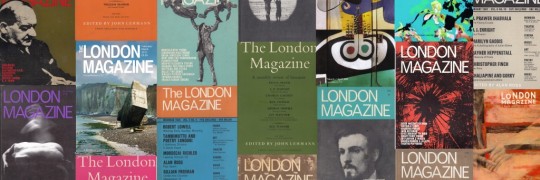
Poet Scarlett Sabet
In conversation with poet Gerard Malanga for London Magazine.
The London Magazine is England’s oldest literary periodical, with a history stretching back to 1732. Today – reinvigorated for a new century – the Magazine’s essence remains unchanged: it is a home for the best writing and an indispensable feature on the British literary landscape-London Magazine
See here
“After meeting at a French New Wave Cinema book launch in London in November 2019, poets Gerard Malanga and Scarlett Sabet have since kept in regular correspondence via email.
In this unique interview, conducted over several weeks while thousands of miles apart, the two writers discuss shared influences, the recent passing of the Beat Generation poet Michael McClure, and the grounding influence of poetry throughout the international lockdown.
This interview is based on the poets’ original email correspondence and has been edited for clarity.”-London Magazine
GERARD MALANGA: You ask how my week has been? I’ve been in lockdown now for 3 weeks or so, though I might’ve lost count. I have plenty to keep me busy in the house here, plus I have responsibility towards my 3 cats. And then there’s dreamtime, between 4 & 6 in the morning.
But suddenly I felt days back this ennui coming on, like, did the poetry suddenly disappear? Sometimes I’m concerned—but just for a moment mind you—whether I can match or even better the last one? There’s no way I can predict when the muse will appear. If I had the answer, it would vanquish the mystique.
Since I’ve been in lockdown, there’s no going out for me for the morning coffee and The New York Times unfolding on the table. Many a first draft has begun that way, but now with a physical displacement of sorts I can’t claim to be an habitue of the cafe life. The kitchen table serves me well – or wherever I happen to be outdoors – so long as I have a small notebook in my pocket. I even prop myself up in bed with a clipboard pressed against my knees. I follow where I feel a poem coming on. When I start, then I know I’m in for it, but don’t give it the slightest thought. I’m in for the ride.
SCARLETT SABET: Yes, I find sometimes walking in the morning, having a destination, getting into my body and moving get’s the ball rolling with writing. I can understand the ritual of going to a cafe. I’ve written on trains a lot, the motion and rhythm helps, and because I’m in a vacuum in transit I can’t be reached.
I love the image of your 4am dream writing, I think that’s a great ritual. Sometimes I write three pages first thing in the morning, and it’s just anything on my mind. I’ve also found meditation helpful, deepening my state of consciousness and then writing straight afterwards to see what comes out, kind of like automatic writing in the spirit of Austin Osman Spare.
We were both raised Catholic, I wonder if that has had any bearing on your writing or practices? I find a great sense of divinity in art, those moments of inspiration.
GERARD MALANGA: Funny that you would mention that. No one’s ever asked me about my spirituality, that I recall. People have weird notions about me, like I’m some kind of guy about town. I may have a little bit of that too. But spirituality for me is to be able to laugh at yourself. Even when I talk to my cats, I’m laughing at myself. I don’t mean physically laughing as such but going about life without being self-conscious. It helps when I’m writing a poem.
Back in 1970 or so, I had a spiritual conversion. One of my closest friends, a guy named Jim Jacobs, turned me on to the first two Carlos Castaneda/Don Juan books; so we were basically comparing notes and one of the themes that came through for us was to follow your nature to be happy. Suddenly we found ourselves wearing white clothing and calling ourselves the white lights. When we went to London we ended up buying an all-white 1939 Bentley convertible with one windshield wiper not wiping, and it basically gave us the freedom to go visit friends in the English countryside. It sounds hysterically funny when I look back at this, but we were quite sincere in our endeavors. If this was going to be our path we had to be true to the discoveries we made along the way.
During our travels we decided to split off and agreed to re-connect a couple of years later in the Massachusetts Berkshires where he’s from and continue where we left off. Jim ended up being one of the top dealers in the secondary art market handling the likes of Judd and Cy Twombly, and now he’s curating shows. I continued to write poetry without a care in the world and became more attuned to the pictures I was taking. I truly feel I’ve become a better photographer because of the experiences I had. You have to be courageous to suddenly drop out and then drop back in.
Back in ’74, I had this idea for a book of my spiritual poetry that would have as its cover one of those kitschy paintings of Jesus. I called it ‘Poems for the Fat Lady’. You know, the Fat Lady was a phrase I’d picked up from reading Salinger’s Raise High the Roof Beam, Carpenters, where he’s actually equating Jesus with the Fat Lady, that they were one. That’s pretty neat, I thought. It didn’t go over too well with my publisher who rejected the idea outright. He thought I was joking. So I settled for a kind of even-balanced title, Incarnations,’ and changed the poems around.
Perhaps, the Fat Lady was the closest I ever got to God, though I don’t give it much thought these days. It’s the inspiration and the love that come from it which is the driving force and source for much of what I’m writing nowadays, and that’s the joy when I finally finish a poem. A state of happiness sets in for me.
SCARLETT SABET: And what you said makes sense, I can understand it. Did you have a period where you rebelled against spirituality or Catholicism and were, say, atheist? Although it’s bizarre for me to admit it, once I left school I did swing to atheism, I guess as a way of rebelling or a reaction. School can be dogmatic.
GERARD MALANGA: In hindsight, to embrace atheism, Scarlett, would deny the spirituality within me which accounts for a lot of my poetry as well. There was no real rebellion on my part. I always felt that my guardian angel was looking after me when I was fated to become a poet. Who would I be, otherwise? It’s a scary proposition, come to think of it.
SCARLETT SABET: True, looking back I realise I’ve always had a Guardian Angel too. I’m so sorry for the loss of [influential Beat poet] Michael McClure, and I was moved by the picture you took of him in San Francisco, 1972. What was that day like?
GERARD MALANGA: If I live long enough, God willing, I may end up not knowing anyone because at this juncture a lot of my friends have already passed. Many of them in the obituary series of my most recent book Cool, which you have. I don’t want to slip into a consciousness of perpetual mourning. Yet I hadn’t anticipated that I’d be writing a poem for Michael, but then I opened up to myself and his consciousness flowed right in. Perhaps I had a vacuum to fill at that moment from an external point of view, taking Michael’s place for the poem that would talk to him and he to me.
I remember little of that when I came to visit with him and made his portrait. It was a serene afternoon. Just him and me. I remember distinctly that we went off in his car, perhaps to a restaurant. We were driving somewhere, and that made sense. But for the life of me I remember nothing of what transpired over lunch. With all the history—and it ain’t an awful lot—there’s still a history there to be acknowledged. You know, I performed the part of Billy the Kid in Warhol’s movie which we adapted from Michael’s play, The Beard. Hardly anyone knows this; perhaps in part because I believe the movie has never been shown. So the friendships last and last and continue beyond the grave.
SCARLETT SABET: I’m always struck by the structure of your poems. I was wondering what your approach to this was, whether there was any major influence from particular poets of your youth, or even whether the way that you frame scenes and ideas within poems has any crossover influence from your work in the wider art world?
GERARD MALANGA: Yes, there’s probably a very strict structure to my poems, but it’s casually applied in what the work proposes as possibility, which I don’t even notice when I’m starting out. For instance, for a very long time, the opening to the work begins with an indented first line of let’s say 8 characters. It’s my way of engaging myself and the reader into a form of poetry that’s a radically different departure from what may be normally perceived. Yes, it’s a poem, but I like to think of them as prose poems as well.
I left ‘influences’ behind decades back. I’m pretty much on autopilot. I’m my own navigator. I travel the journey alone. My earliest influence when I literally started was Gerard Manley Hopkins. I was enchanted by his system of ‘sprung rhythm’ which he basically invented with no imitators following. That would’ve been 1959 during the start of the high school year in my senior class. In 1962, I believe, John Ashbery made a profound influence on my early work with his book The Tennis Court Oath. That became my Bible. I’d carry it around my duffle bag wherever I went. But it was Ted Berrigan with his Sonnets in ’64 that unlocked the door for me into what Ashbery was doing and that was a sheer liberating factor. From there the work continued to expand on its own.
The only ‘crossover influence’ that I imagine, as you put it, in the ‘wider art world’ would be my own life, and not the art world, per se. So what we have here is the tendency to open almost all the work in the form of what appears to be a letter on the surface, but is actually a message. I’m addressing the subjects of my poems directly; they’re not ‘about’ the subject. I’m talking directly to them, as if they’re right in the room, whether it’s a person or a cat.
SCARLETT SABET: You mention you don’t write about your subjects but address them directly in your poems. I think this is what makes them so arresting and intimate, particularly in the ‘Lives They Lived’ chapter in your beautiful collection Cool & Other Poems [published by Bottle of Smoke Press]. Each poem is a visceral portal, allowing the reader to be present with you, and witness Christopher Logue against a snowing sky before warming his hands around a mug of cognac, and Anita Pallenberg a vivacious, laughing woman sitting opposite you at Cafe Flore. Also in that chapter you include a poem entitled ‘Gerard Malanga dies’. The poem contains the line ‘I am my only guide now,’ which I found so powerful. Could you tell us how that poem came to be?
GERARD MALANGA: Putting together that section, ‘The Lives They Lived’, I figuratively had to step outside myself. That’s how close I was with many of those listed and to the memories I have of them held dear. It was not an easy section to compile. By the way, ‘The Lives They Lived’, is borrowed from the New York Times‘s annual round-up supplement. I called my contact at the paper to get permission to use it and he saw no problem involved.
Writing ‘Gerard Malanga dies’ was a tricky situation in the need to make it work. It was one of the final poems in the section and it presented me with an opportunity to address certain issues surrounding death and to those friends I’d already acknowledged over a period of nearly 40 years. I also lapse into a bit of my own personal history, as if I’m contemplating how others might see me after I’ve gone: ‘The rabbit hole is waiting for my plunge.’ Somehow, that image of the rabbit hole has emerged in a few of my poems and also echoes back to Lewis Carroll’s Alice in Wonderland, one of my favorite childhood books.
The rabbit hole is an image for both death and resurrection, as I see it. Here, I question myself, ‘Am I preparing for another life? A return to life?’ And so I treat this poem as slowly nearing its own end with a ‘journey’ back to life ‘…and on and on…’. I equate this with an actual journey I’d taken by train from ‘Glasgow down to Central London…’ back in 2014 where I’d been dreamily staring out the window at a passing landscape I might not ever explore at any other time.
‘Will I even find my way home to the Bronx’ alludes to a movie I’d seen years back I recall, called ‘The Swimmer’ adapted from a John Cheever short story. Starring Burt Lancaster, his character is swimming across a series of backyard swimming pools and encountering neighbors he knew poolside in attempting to reach home. And when he arrives in the pouring rain and runs up to the door, he discovers that the door’s locked and the house is empty. Such a potent ending and darkened cinematic metaphor, brilliantly done. And it’s these private memories in my life resurfacing that I feel nourishes my work.
SCARLETT SABET: We met at a book launch in London, and you were immediately swarmed, surrounded by people. I think that is a testament to the impact your writing has had globally and across generations. How has your home city of New York and its literary landscape changed and evolved for you over the years? Is it something you feel especially connected to?
GERARD MALANGA: Your question speaks volumes, but I’m going to try to be as brief and succinct as I can hope to be as the facts show. I’m seventy-seven now and there have been no accolades to show for it. Cool came out last year and Whisper Sweet Nothings two years prior and together they comprise the best of anything I’ve ever done, and yet they’ve been totally ignored by the New York literary press overall. In the five decades I’ve been publishing I’ve received not one grant or fellowship or any of the prizes totaling in the millions. Nada. Zilch. I can’t even get my memoirs published and I have thousands of fans waiting for this book. You would think that would count for something. I’m grateful for the European attitude towards my work. That’s what keeps the work alive for me. That’s where my audience is and they relate. I love what I do, and I know it shows through the work from the responses at the readings I give and that’s how my work thrives. I love my audience and that’s the truth of it.
SCARLETT SABET: A year ago today, I finished my waitressing shift, went home and listened to what Jimmy [Page] had produced from the recordings we had made of my poems. this became our spoken word album Catalyst. It was a joy to be able to give you our album as I am so moved by your work. It had a sense of synchronicity also, as years earlier, Jimmy had given me a signed edition of your beautiful poem ‘Devotion’.
You said that ‘Cut Up’ was your favourite track on Catalyst. I had christened that poem ‘Cut Up’ simply because it was the first time I had used the William Burroughs/Brion Gysin method. I always feel it’s a handing over, a leap of faith to a higher power, to introduce another energy to it, and it came out with it’s own dark, random rhythm. Burroughs said “when you cut into the present the future leaks out”, and in that sense it has a spell like quality or possibility.
Some poems I’ve written in one sitting, a sort of channeling, like ‘Fifth Circle of Hell’, which is also on Catalyst. But part of the reason I found the cut-up method so liberating that first time was that I was trying to write a poem to encapsulate that period. I felt cautious because the subject matter was focused on the events in Europe and the Middle East, and the horrors and blood shed of the Bataclan attacks in Paris. I think my own identity and ethnicity – my mother is French-Scottish and my father is Persian – gave this piece more weight personally. So really, the cut-up was a way of detaching through the process, which was effective. I suppose I wonder what your thoughts are on cut-ups?
GERARD MALANGA: Scarlett, cut-ups are a tricky business. They almost feel spontaneous, but with every move there’s no turning back. They’re the antithesis to parallel grammatical structures which is how we reform language to make things sound right. You see Bill [Burroughs] stuck with it all his life. Cut-ups were his language and he embraced the process. It’s okay to experiment with language so long as you come out at the other end with something that satisfies you and encourages you to want to do more, to go further. That’s a big commitment. The one thing you want to avoid is being self-conscious in the process, as you put it. There’s no room for self-consciousness in cut-ups. You have to operate on a more or less unconscious level like when you dream.
Of course, you realize this in dreams. I don’t need to tell you. In dreams, nothing really connects or relates. Dreaming is a series of visual and mental disconnects. One thing leads to the next but you don’t know why nor do you have time to stop to know why. It’s like you go with the flow. Excuse the corniness of this. Dreams are the cut-ups of the unconscious. You can’t go back to change anything to make it better. There’s nothing qualitative about it. When that happens to me, I try to maintain the balance of the good and the bad together. All of it. Yes, I’ve done a little tweaking here and there, but only because I’m now in the conscious state and I want to make the lines sound just right. So it’s okay to prune. Robert Lowell taught me how to prune. But you have to know what you’re doing. It’s trusting your instincts. That’s what I do. If I throw out a perfectly terrific line, it’s because I’m trusting my instincts. But, of course, only I know that. The reader doesn’t, nor does he need to.
One of my earliest poems was a form of the cut-up. My English teacher in high school, Daisy Aldan, who introduced me to the world of poetry, gave us an assignment in class to cut out words at random from the newspaper and fill a paper bag with them. The next step was to reach into the bag and pick out one word at a time and place them on a page, and then to transcribe those words into a text, including all the capital and lower-case letters. I did one better and glued them onto the page. This all had to do with chance. Remember, Stéphane Mallarmé, in his last poem ‘Un coup de dés’ said that a ‘a throw of the dice NEVER NEVER will abolish chance.’ Well, he was right about that. You take your chances, you trust your instincts.
SCARLETT SABET: I’ve started reading Gysin’s novel The Process. I bought it last year at Shakespeare&Co but started reading it now to feel closer to Morocco, a place that I really love, while still in lockdown. I wondered what places have meant the most to you?
GERARD MALANGA: I have Brion’s book on my shelf, but I’ve yet to read it. Perhaps I’m still not ready for it yet. Right now I’m immersed in Tolstoy’s Anna Karenina. What I like about it is that it reads like it’s not translated but written directly in English. That’s probably the best kind of translated work.
The first place that comes to mind that has meant the most to me, although there may have been others, is the Cafe Flore. It was my first introduction to cafe life when I arrived in Paris in the spring of 1965. And henceforth whenever I’ve visited Paris, I would arrive punctually every morning during my stays. There’s no other cafe that does it for me. Of course, there’s the cafe in the Luxembourg Gardens, but that’s more like a restaurant; a different ambiance entirely. The Flore has a certain something, a certain charm about it that allows me to immerse myself reading the morning papers or writing a poem even. The food’s good too. The croissants, the omelettes, the cafe creme. Some years back, I started referring to it as my ’office’ whenever I had an appointment to meet with friends. And I’d be certain to book a hotel room within walking distance. Anyway, the Flore is the start of my day.
SCARLETT SABET: Well, I hope one day, when the lockdown is over, we can meet you at Cafe Flore.
Photos: London Magazine
#scarlett sabet#jimmy page#jimmy page girlfriend#led zeppelin#poet#poetry#the london magazine#london magazine#gerard malanga
5 notes
·
View notes
Text
The Virgin Mary
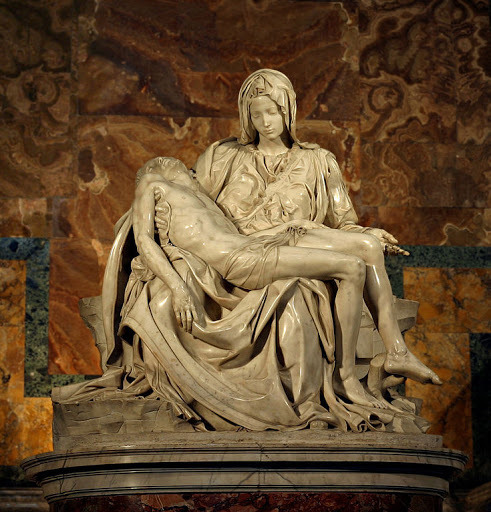
I was first inspired to write this biography by an issue of LIFE magazine that was completely about Mary. As I was reading I realized that despite being raised in a Christian household, as well as being surrounded by Serbian Orthodox and Catholic families for most of my young life-- the only thing I truly knew of Mary was that she was the virgin mother of Jesus. It’s important for me to note that although my family was full of devout Christians, I had spent all of my life rejecting it as a non-believer. I still stick to this thought process today.
I had learned later in my first semester of college of the symbolism and religious rites that surround her, but I still did not know anything of the Historical life around her. Was she real? What kind of life did she live? And who really was she? I wanted to know the truth vs myth of who Mary was.
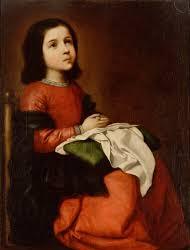
“The young Jewish girl goes to the stone synagogue in Nazareth. She offers devotions in the small women’s section adjacent to the main prayer hall. In chorus with the other congregants, the girl recites Psalms and absorbs their lessons: ‘Abandon yourself to God.’
One extraordinary day she is visited by an angel who asks if she’ll play a part in the birth of God’s son. She answers yes. Perhaps a little more than 2,000 years ago, she makes her way with her husband Joseph, a carpenter, to a village called Bethlehem. Perhaps Bethlehem; some scholars posit Nazareth as more likely. In a stable, for the inn was filled, Mary and Joseph celebrate the birth of a son. They lay the infant in a feeding stall and name him Yeshua -- in Greek: Jesus. she raises Jesus to be a strong, brave young man. A leader of other men. That is the story of Miriam of Nazareth. And that is all we really know,”
But how did we get to this story? If as stated by Jarslov Peikan, we could copy on an eight by eleven sheet everything there is about Mary in the New Testament. Then why is Mary so popular through the ages? I think Mary is the perfect and most original examples of what happens when an idea evolves and grows from its original source.
Miriam of Nazareth: Miriam was born in a small village in Galilee. Known as Mary to the masses, her real name would have been Miriam or Maryamme-- one of the most common names of the day. As a young Jewish woman living in Palestine, she was a second class citizen. Not knowing how to read or write, she worked alongside her mother since she could walk. Basically, she was a poor woman and modern depictions of her are usually able to recognize that, But, the catholic church had a huge role in presenting us with images of a fair-skinned woman robed in blue silk. When she was a Mediterranean woman of low class who would have most definitely worn a simple wool or linen tunics and a shawl over her head.
The political environment of Mary’s life was a complicated one with constant Jewish oppression in the form of Roman legions. The end of the dictatorship of Herod the Great had made way for the Romans to storm into Galilee and squash Jewish revolts. Which I think is a perfect breeding ground for Jewish prophecy of a savior to form in. Josephus, a Jewish writer records that many cities were burned and people murdered by the Romans
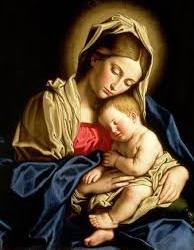
Mary and Joseph: So, where does Joseph come into the life of Mary? The popular image of Mary we have come to know is that of a young woman in her early twenties birthing the savior. But, if we think realistically of the time period, she was probably only 12 or 13 years of age when betrothed to Joseph. Who would have been much older than she. However, Mary became pregnant before her marriage to Joseph. Let’s see how the Bible addresses this:
(NCV) Luke 1:26-38:
“God sent the angel Gabriel to Nazareth, a town in Galilee, to a virgin. She was engaged to marry a man named Joseph from the family of David. Her name was Mary. the angel came to her and said, ‘Greetings The Lord has blessed you and is with you.’ But Mary was very startled by what the angel said and wondered what this greeting might mean. The angel said to her ‘Don’t be afraid Mary; God has shown you his grace. Listen! You will become pregnant and give birth to a son, and you name him Jesus. He will be great and will be called the Son of the Most High. The Lord God will give him the throne of King David, his ancestor. He will rule over the people of Jacob forever, and his kingdom will never end.’ Mary said to the angel, ‘how will this happen since I am a virgin?’ The angel said to Mary, ‘The Holy Spirit will come upon you, and the power of the Most High will cover you. For this reason the baby will be Holy and will be the Son of God.’ Mary said, ‘ I am the servant of the Lord. Let this happen to me as you say.’ And the angel went away.”
For the millions of Christians, Catholics, and sub-sets of these practices, the Immaculate Conception is proven fact based on the actual fact the Bible records it as such. The apparently divine conceptions of Jesus Christ, is a miracle -- a simple and unquestionable matter of Faith. But the gospels tell us very little about Mary and the pregnancy itself. Nor does it cover the societal reaction of Mary exposing to her village, let alone her husband. When Joseph had found put, he would have most definitely thought of her as unfaithful. We do know that when Joseph found out, he had the idea to divorce her quietly, as not to expose her to shame and death from the village elders. But the Bible does state that an angel appeared to Joseph and said, “Joseph, son of David, do not be afraid to take Mary as your wife, Because what is conceived in her is from the Holy Spirit. She will give birth to a son, and you are to name his Jesus, because he will save people from their sins.
Since most scholars today consider most of the Bible to be legend and mythology, it could be theorized that Mary, a young girl of no younger than 12 but no older than 16 had been raped by a stranger or Joseph himself. I believe it could be Joseph because I don’t know why he would have motivation to cover up another man’s rape child as the birth of the savior. I theorize essentially, that Mary and Joseph had premarital sex and Mary was impregnated. I will not determine that Joseph actually raped her as there was no such thing as statutory rape back then and they were already betrothed. I know that does not exclude it. But, given the context of the time, That is my estimate. No one will ever know what actually happened probably besides Mary herself.
But was the immaculate conception truly just a couples cover up? Maybe. We probably won't ever really know. I cannot prove or deny what is fundamentally the foundation of 2 major religions and its sub-branches. But, I as someone who believes in nothing, have a hard time thinking that this was simply a Hebrew God formulating the redemption of Man. However, the New Testament, and I suppose history; say that Joseph was a kind man, and did not give away Mary to the Elders or have her stoned for “adultery.” As far as how and exactly when the conception happened, that will continue to remain between Mary and Joseph... Or maybe Mary and herself. Even then, practically impossibly, it could be true that Mary gave birth to the Jewish Messiah.

Mary the Idea: It’s important to address the immaculate conception and life of Mary as the ultimate catalyst for what she would become. So how did Mary become the exalted Saint and Mother of All ideal to the populace?
When taking a look at Mary’s fame, it is not terribly difficult to see her evolution as the Virgin Mother of the Messiah to the Virgin Mother of all the Christian World. Though it is important to know that she is more popularly worshiped by catholic sects, Christianity also celebrated her above any other biblical figure, Save God/Jesus himself.
“Not everyone needs a brother or sister or savior, or accepts that a savior has arrived historically, or will do so one day. But everyone once had a mother.” Basically, even with all the majesty of the universe going on and changing around you, we all need a mother. Even though she is not the only saint to patron mothers, children, motherhood, and orphans-- she is regarded as the Mother of Mothers and Jesus/God is the King of Kings, Having a mother (with special circumstances aside) is the one most universal experiences of life. We all have one and we all want to love them and be loved in return. And Mary is clearly the finest and most ideal example of a mother in all of history. She is the mother of Jesus, How could she herself not be equally perfect?
But as we know, Mary as a mother is not really explored in the Bible. Basically through the centuries, as Christianity spread through European missionaries and expanded as an idea/religion, Mary expanded as well. If Christianity were not so against “false idols” I think she would be a Christian god in her own right. She was also a huge inspiration to poor people as an impoverished second class citizen becoming the “Queen of Heaven.”
Millions of people today and throughout history have turned to Mary for help, fortune, and love. She is the most named after woman in history and the most prayed to saint in all of Catholicism. Mary was a girl whose choices and circumstances made her into the most famous woman ever. Not all to her own credit as I hardly assume she could have predicted this, The spread of Christianity through colonialism was probably the biggest amplification of her life and story. Allowing her to become Mary, Mother of All.
#mary#the virgin mary#catholiscism#history#christianity#religion#jesus christ#the bible#catholic#christian#immaculate conception
1 note
·
View note
Text
The Constitutional Rights of the Peculiar
I remember watching all 51 days of the Waco siege in the Memorial Hall lobby at Geneva College with many of my classmates. Geneva College is affiliated with the Reformed Presbyterian Church, and the RP's practice of Christianity is mildly controversial. As Christian College students, the events vibed with us because it involved Christian. Peculiar Christians, but Christians nonetheless.
In case you weren’t aware, the basis for all the flavors of Christianity comes down to the fact that we all believe at least part of what the other guy believes is peculiar. Peculiar enough to have different churches.
Not the least of their controversial beliefs, the RP Church does not use instrumentation in their worship. As a guitar player, I was offended. But I've attended their services. It was compulsory as a student for certain events. And I lifted my voice in worship along with the rest of the congregation.It wasn’t fatal. Just felt like it. Especially during the singing.
The School scored higher on the controversial scale when they parted way with a professor because he had converted to Catholicism. I recall it as the least scandalous scandal one could imagine. Geneva College is a Protestant institution of higher learning and holds that the authority of God is found in the Bible. ("Sola Scriptura") The Catholic Church holds that the authority of God comes equally from both the Bible and Church tradition.
Geneva College held that the distinction was so fundamental, there was a rule that a professor that converted to Catholicism could not be a professor. The professor knew it. My recollection is that both the professor and the College handled the situation with grace and integrity.
I remember 51 days of astonishment and disbelief. My instantaneous belief was rooted in the knowledge that the Branch Davidians were an offshoot of the Seventh Day Adventist Church. In short, they were probably nuts. If you're not a Branch Davidian, the logic isn't hard to follow. In short, the idea that they were hoarding guns and were extremists was fairly believable, because at our Christian college, the extremist box was already checked.
But some of us were more curious than that. We weren't sure that David Koresh and his followers weren't having their First Amendment rights trampled. Despite the fact Koresh was a polygamist and was married to teenagers.
The curiosity turned to suspicion when the image of the tank with the American flag flying appeared on the screen. It just didn’t sit right with me, and it’s been an iconic image for me ever since. Frankly, I thought the flag was a foolish decision for anyone trying to resolve the situation. The FBI was camped on the door of the Branch Davidians. The FBI was flying helicopters around, and let’s not forget the incident began with the ATF at the front door locked and loaded and with a warrant. There was no confusion about who the tanks belonged to. So why the flag?
I can’t think of a single compelling reason for a group of people hoping to resolve the situation peacefully to decide to fly that flag. But I am assuming the FBI knew they were the FBI.
During my summers at home while I was in college, I also watched Waco: The Rules of Engagement (https://en.wikipedia.org/wiki/Waco:_The_Rules_of_Engagement) and Paradise Lost (https://en.wikipedia.org/wiki/Paradise_Lost:_The_Child_Murders_at_Robin_Hood_Hills). They are each a good watch in their own right. They each also scared the shit out of me for different reasons.
First, I wasn’t that different from Damien Echols. Weird white kid. Still am. I don’t know if Echols did it, but I do know the evidence produced against him was gathered with such recklessness and negligence that it led to the West Memphis Three entering Alford Pleas. After Eighteen years in prison.
The government can do that. And if they can do that to those three kids, they can do that to me. And you. But this is about me. Eighteen years. That shit is scary.
But, one could say that they got off better than Koresh.
“The Rules of Engagement” is very compelling. One thing that is clear is that Senator Schumer has always been a dick. It’s also compelling from witness testimony that Koresh and his followers held some peculiar beliefs, but lived peaceably and lawfully as a general rule.
Koresh attended gun shows and was a dealer. What the ATF called “stockpiling” is what a gun dealer calls “inventory.” If things had unfolded differently, any case for “stockpiling weapons” might have been summarily dismissed. Because the enforcement of such a law absent the intent to commit a crime is an abridgement of the Constitution. The enforcement of such a warrant would trample all over Koresh’s First Amendment rights. In a tank flying the American flag.
Of course, the ATF warrant wasn’t predicated on “stockpiling” alone. Two thirds of the warrant was predicated on statutory rape. But, the ATF has no jurisdiction over statutory rape. Other issues with the warrant have been noted to be the fact that it was prepared in a “prejudicial and inflammatory manner,” and “put together in a sloppy fashion.”
And there is the fact that prior to the ATF raid, Koresh had invited the ATF to visit and inspect the compound. The ATF opted to have it all unfold differently. Perhaps they didn’t have time for a visit because they were busy practicing for the raid at Fort Hood with funds they had inappropriately secured by misrepresenting to the military that it was for an anti-drug raid.
Unfortunately, we’ll never be able to study the evidence. Somebody burned the house down. Somebody, perhaps somebody else, crushed all the vehicles. Somebody else lost the tape. Somebody lost the front door. And then no agent on the scene filed a written report of the incident. At best, this is not acceptable for a government agency. At worst…that’s some scary shit.
Senator Tom Lantos said of the Waco siege : “The most plausible single explanation for this nightmare is the apocalyptic vision of a criminally insane, charismatic cult leader who was hell bent on bringing about this infernal nightmare in flames and the extermination of the children, the women and the other innocents,” Lantos said.
Well, I saw it reported that way on television as well. But, "most plausible?" "Single?" Five years later, I still thought Koresh was peculiar, but, I was also still bothered by that tank with the flag
When Patrick Henry said “Give me liberty or give me death,” I don’t think he was merely defining a binary solution. Rather, I think he spoke conceptually. I don’t think he viewed his options as “take the liberty or you die.” I think it is better understood as “Give me liberty, or somebody’s gonna fucking die.” Might be you. Might be me. Or, you could just give me the liberty.
Patrick Henry was calling on the patriots to arm themselves in order to fight the British if the demands of the convention were ignored. As a result, we now have a convention called the Constitution.
This may have had little to nothing to do with Koresh's peculiar beliefs, and everything to do with Koresh's Constitutional rights. And Koresh may just have chosen the "Give me death."
Unlike Senator Lantos, I can conceive of an explanation of Waco that holds Koresh as a polygamist with some peculiar beliefs that chose “give me death” when the ATF tried to trample his Constitutional rights.
And the ATF was more than happy to oblige.
For those of you that struggle with reading comprehension, I am not saying Koresh was a hero. What I am stylistically referring to as peculiar is allegedly immoral and illegal. Texas had run investigation of child abuse at the compound however, and there were no charges however.
We were supposed to learn something from the Waco Congressional hearings. I learned something from the hearings, and I have learned it repeatedly over the last 30 years.
At least in criminal matters, I’ll make a judgment when there is a judgment made.
In the case of Waco, my judgment is that there isn’t enough evidence. And that is a crime.
Teaser? I wonder if you know what made Geneva College rate high on the controversy scale in the Supreme Court in recent years?
Teaser? I wonder if Bob Dylan has ever been so drunk that he started playing the same song in concert and had to be corrected by the band? At a Vermont airport while opening for the Grateful Dead?
Paradise Lost is also an integral part of Geneva history, Inspiring stained glass in Mcartney library and a painting by one of our Humanities professors. I got a C, and that is the summation of what I remember from that class.
1 note
·
View note